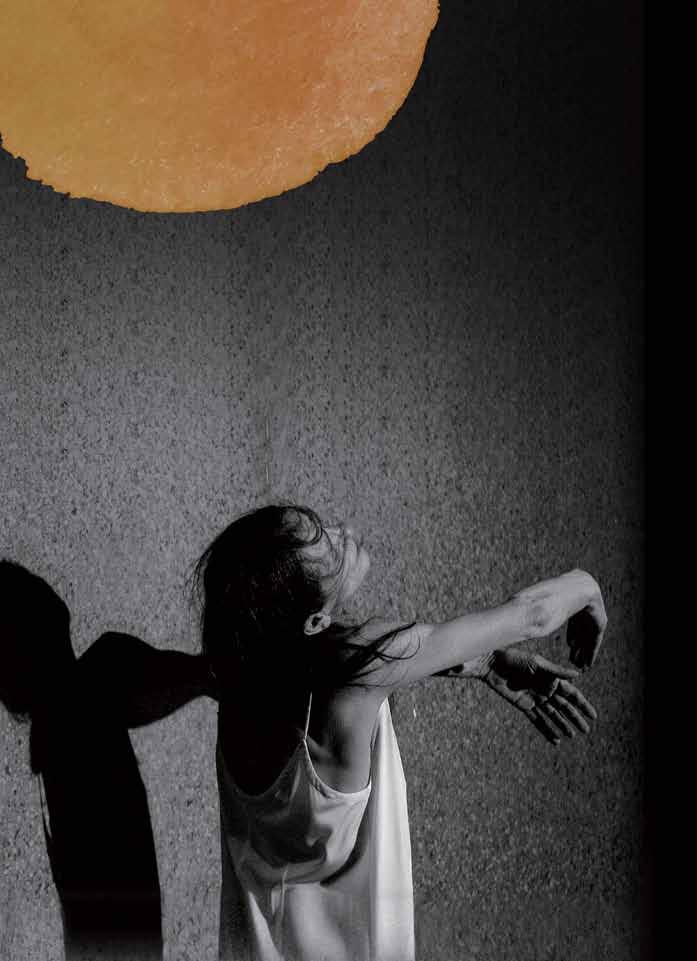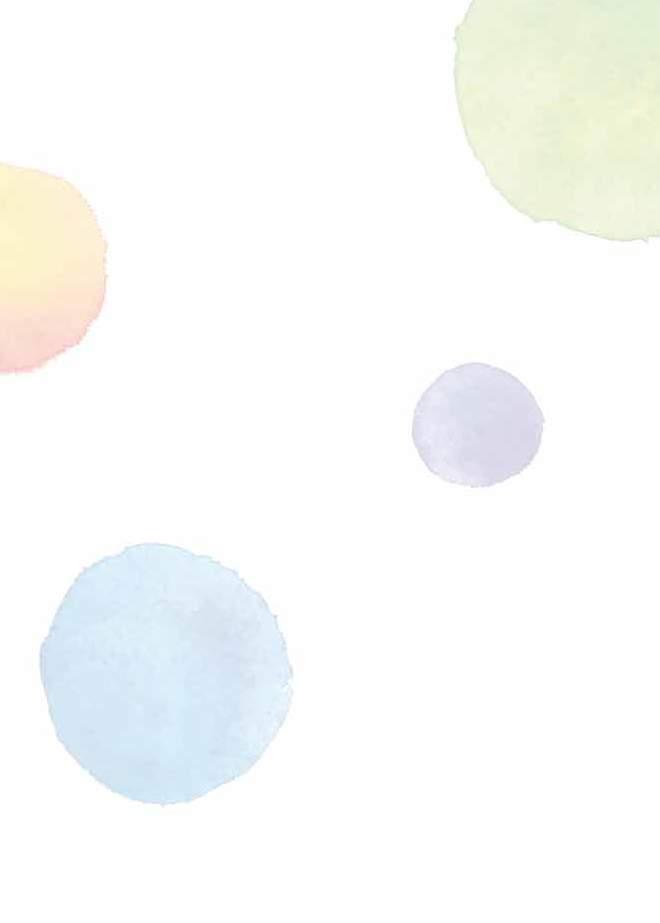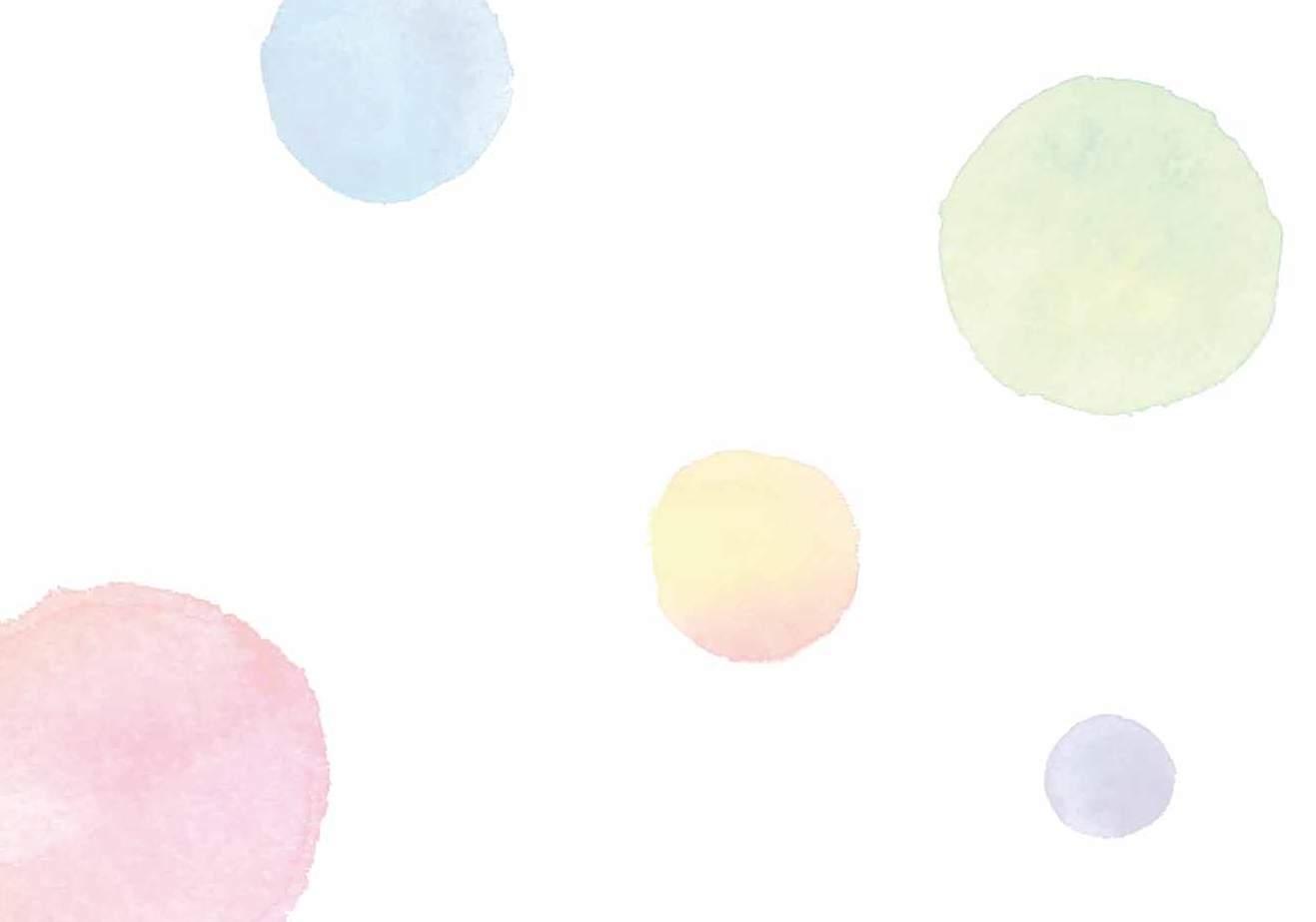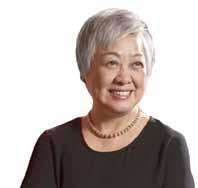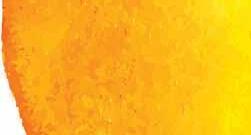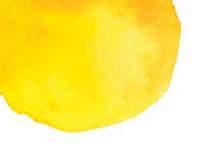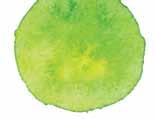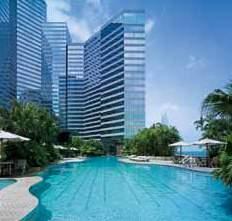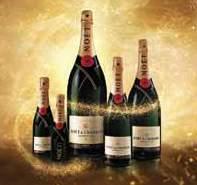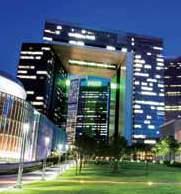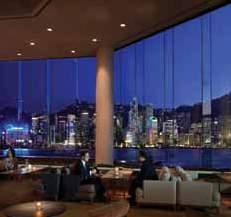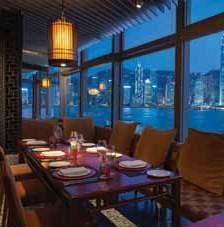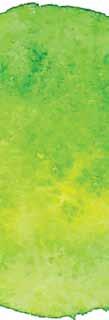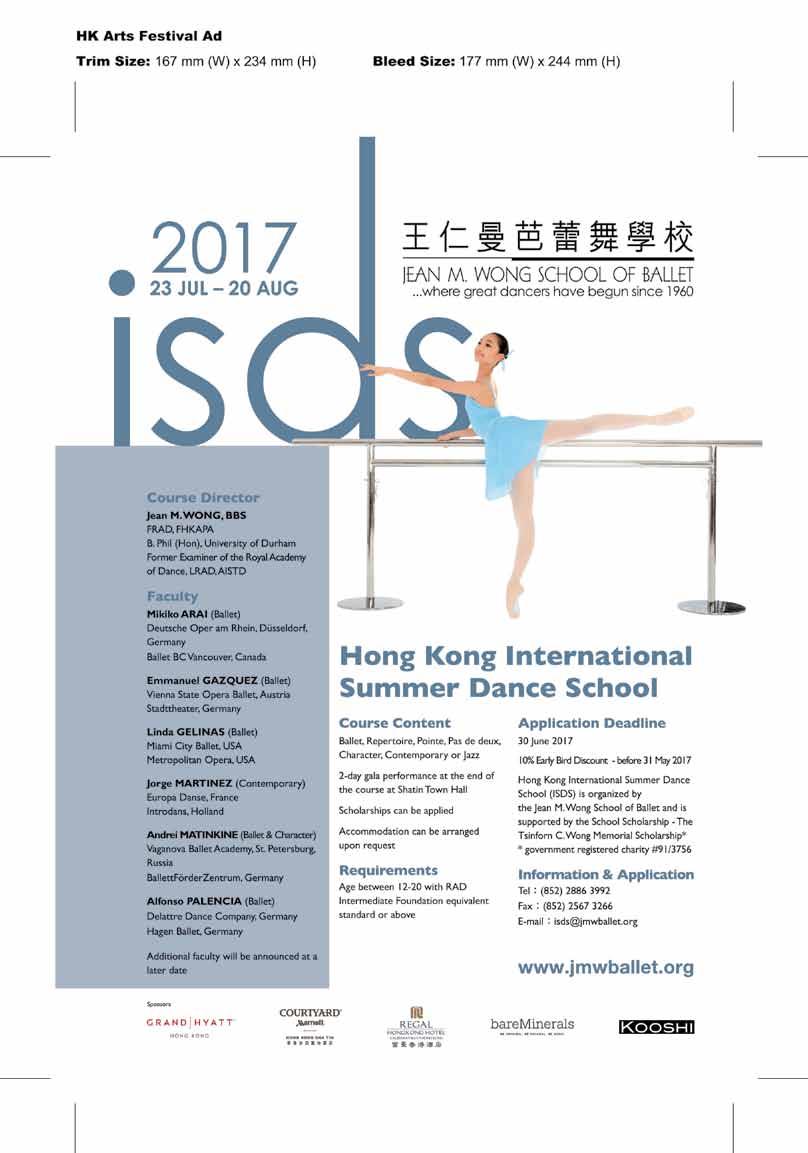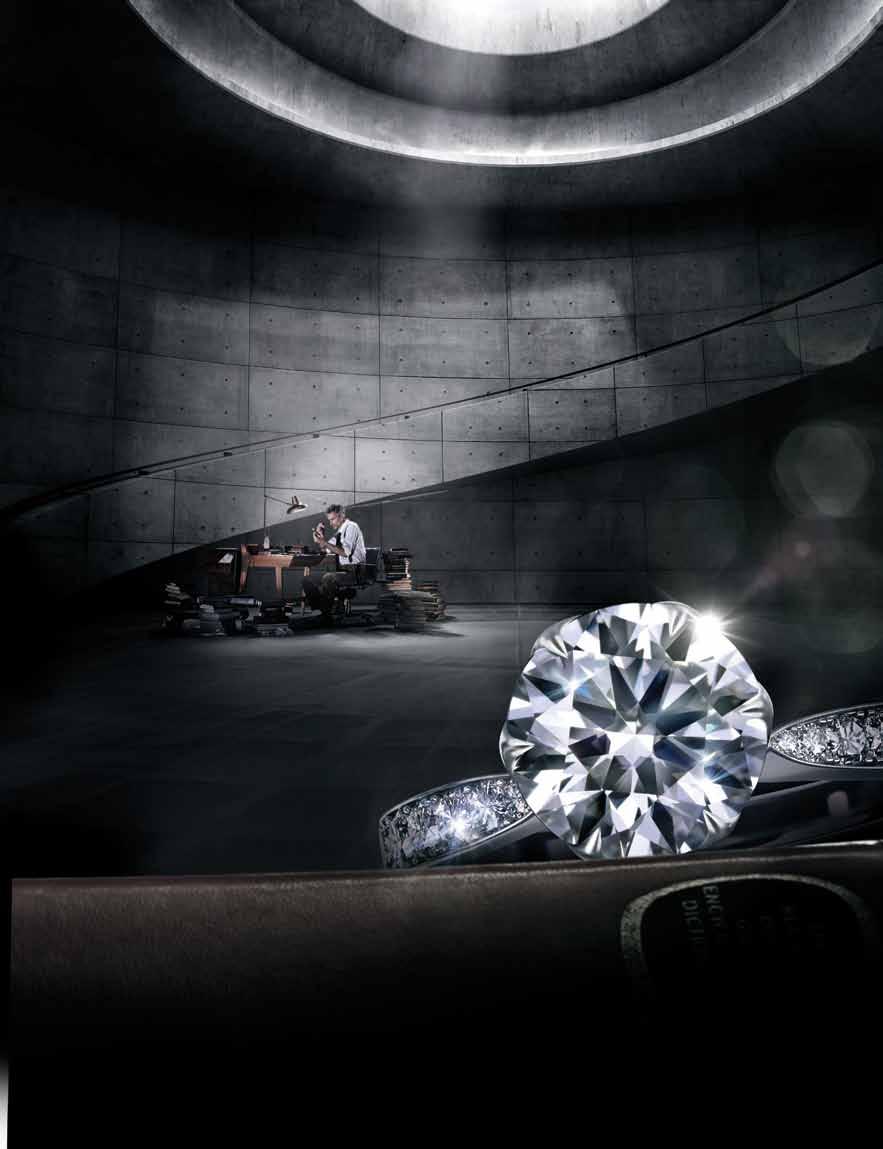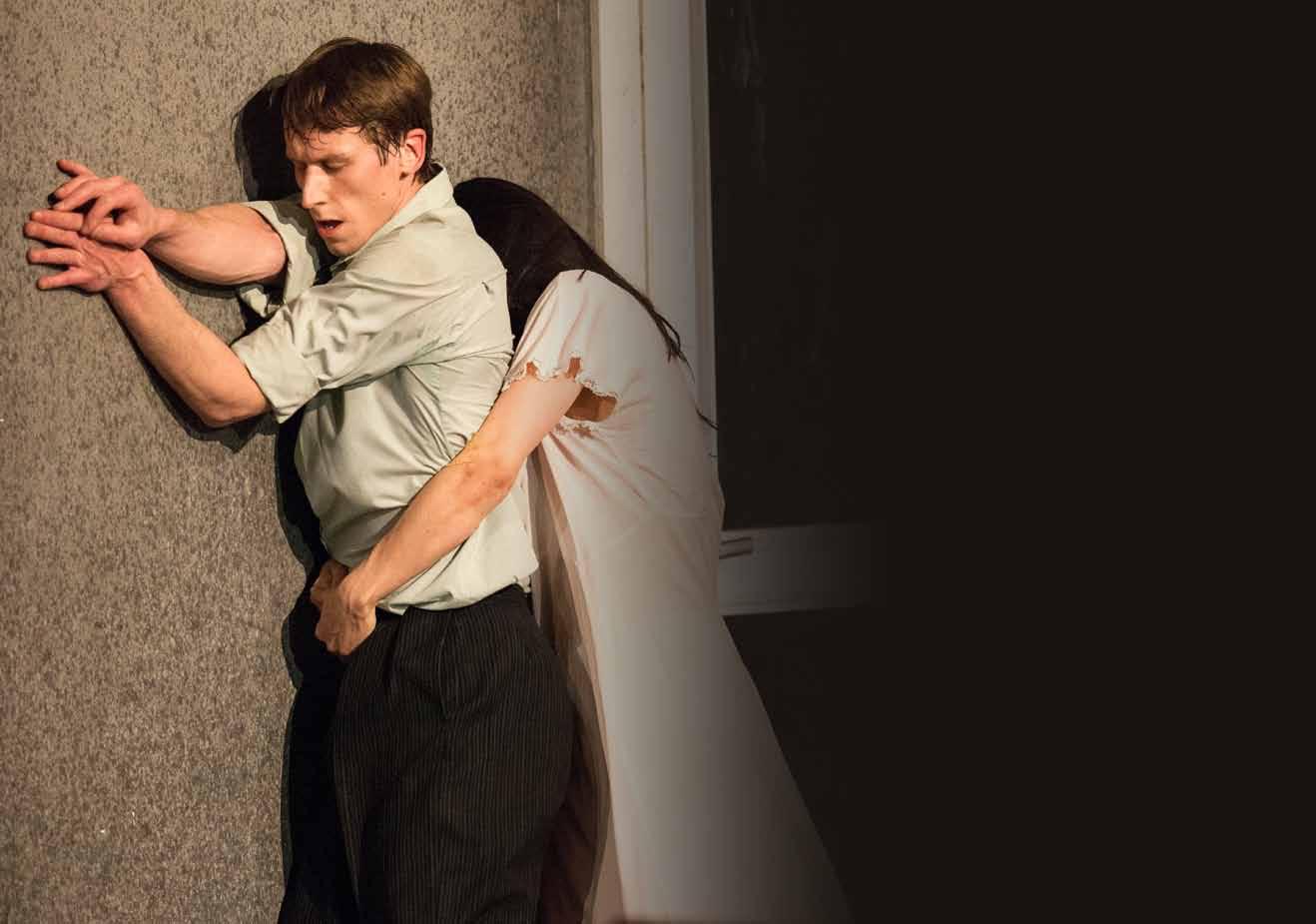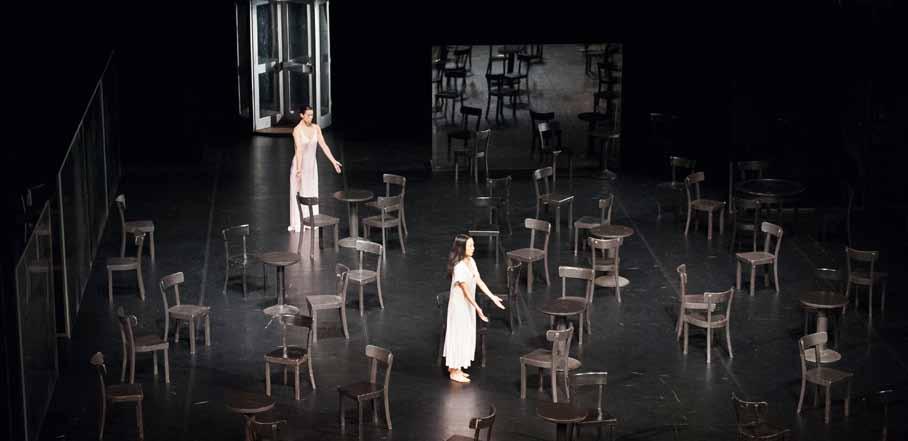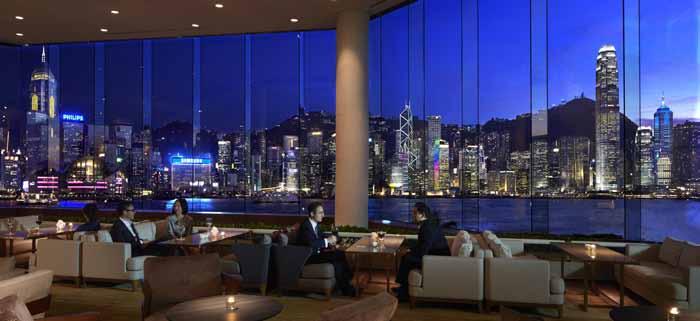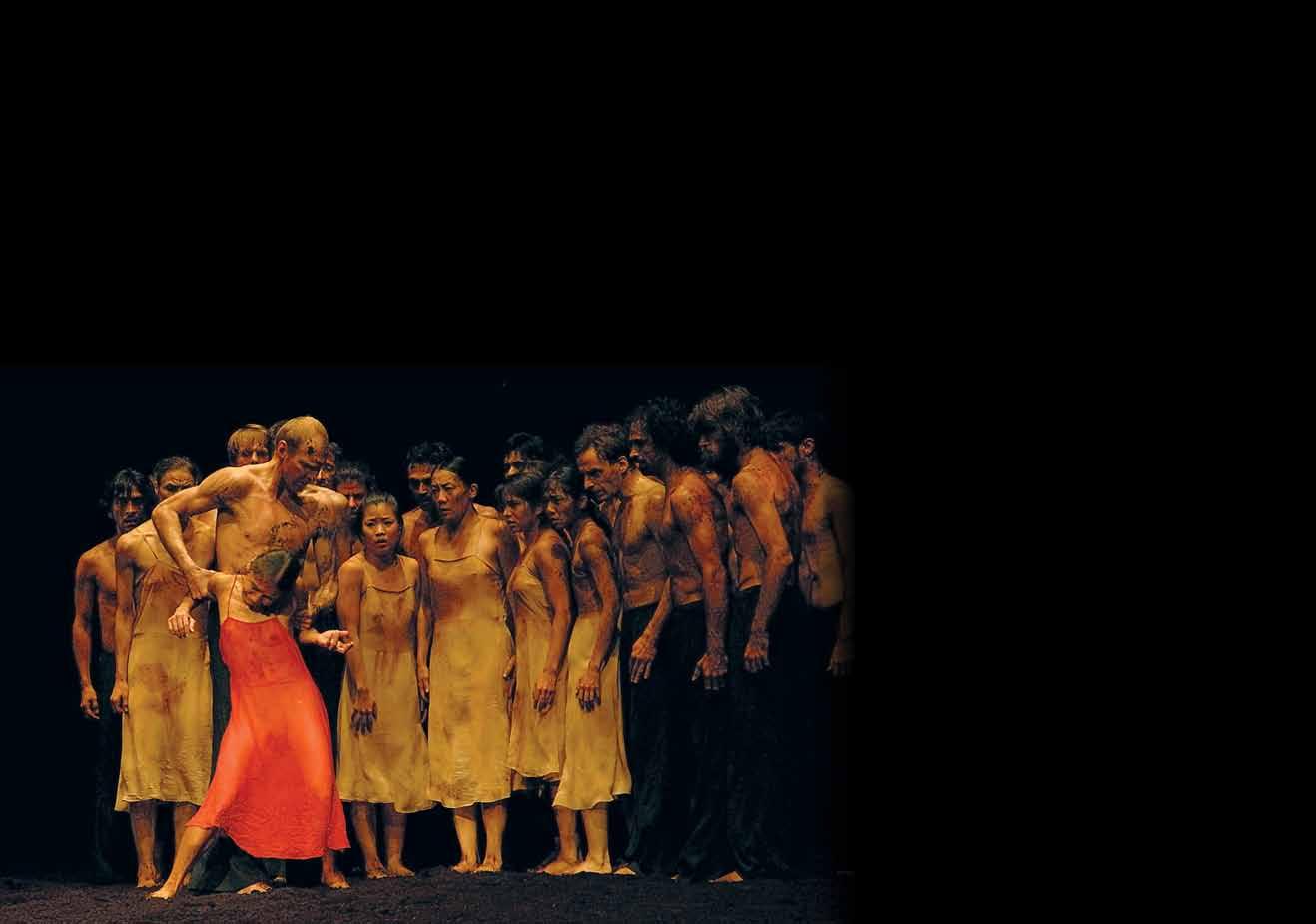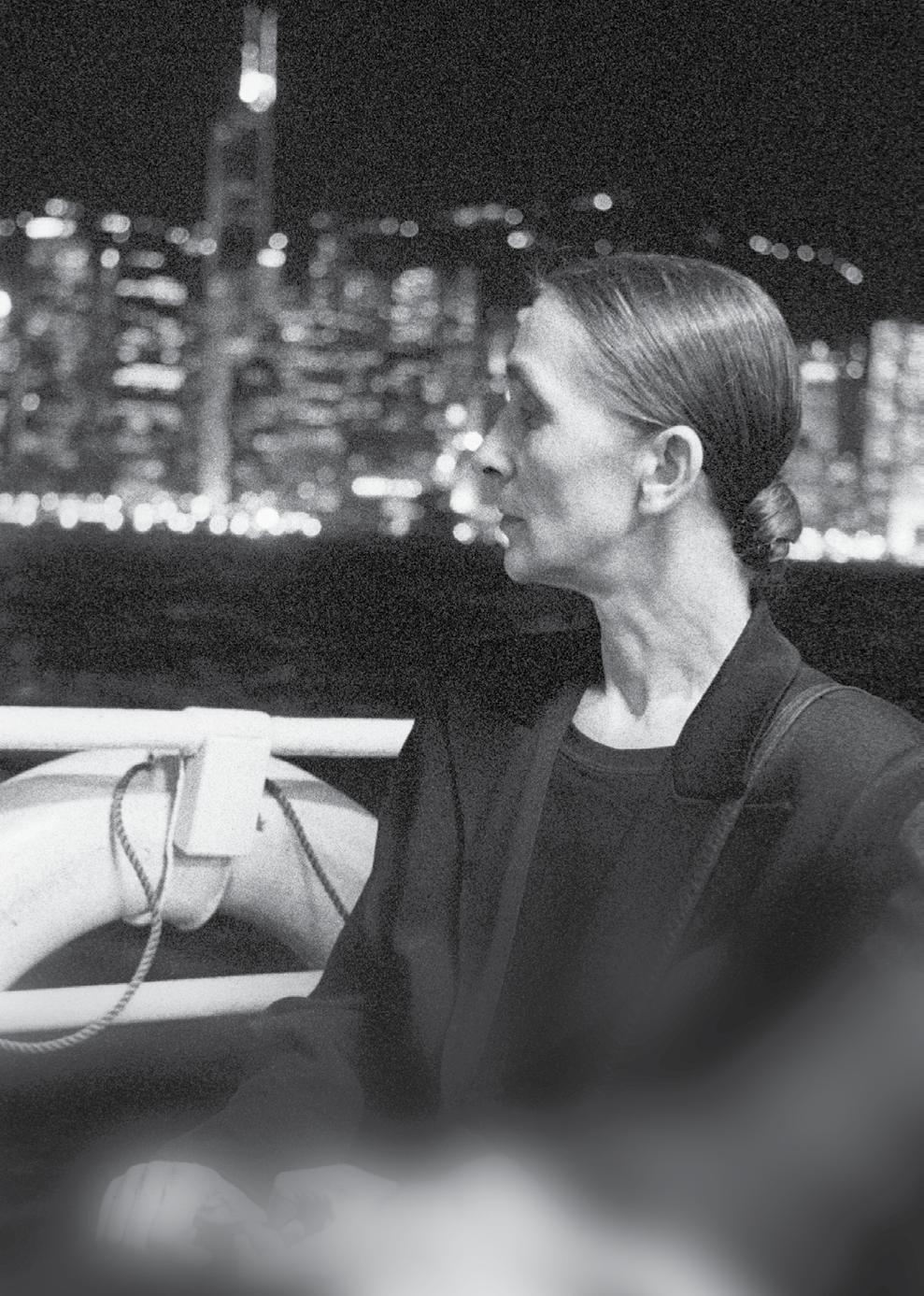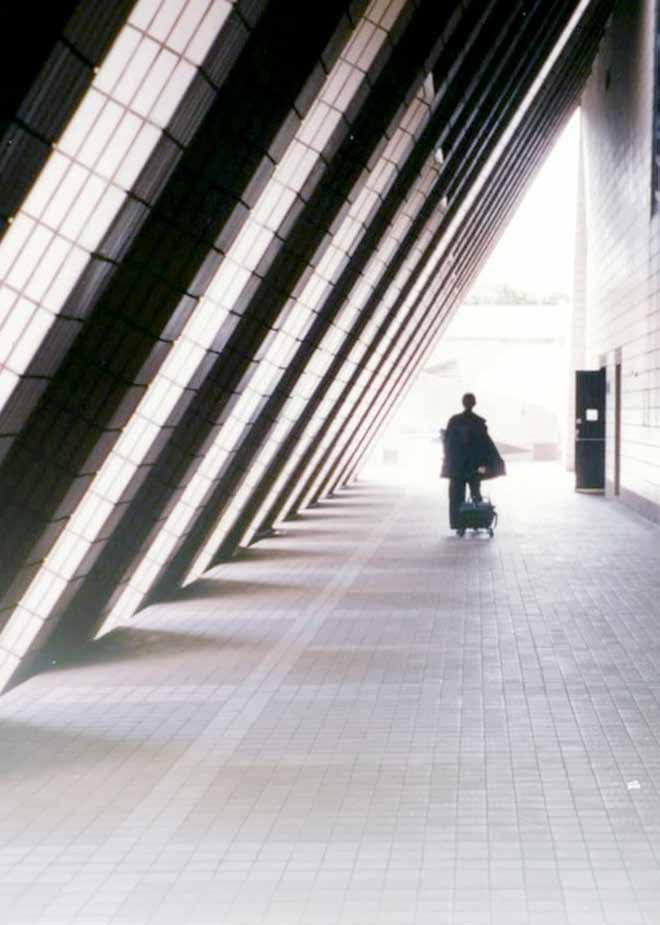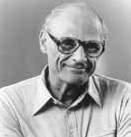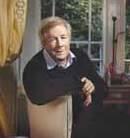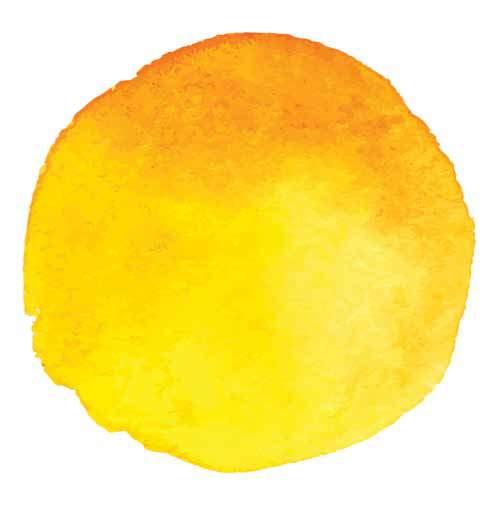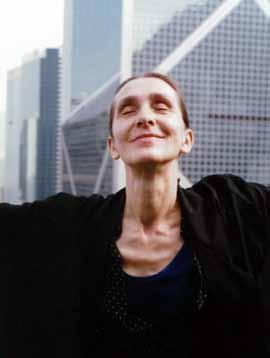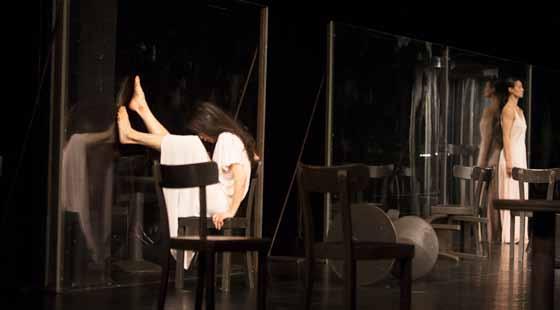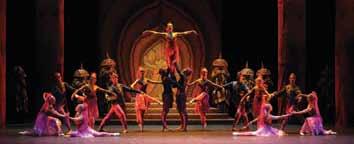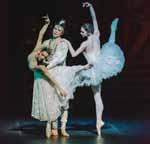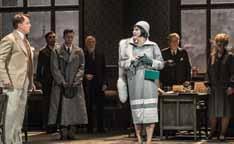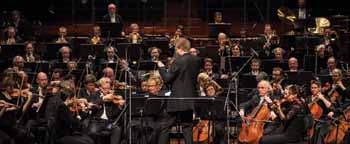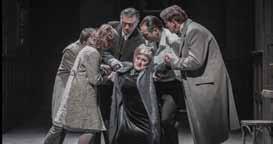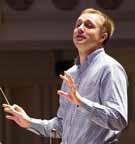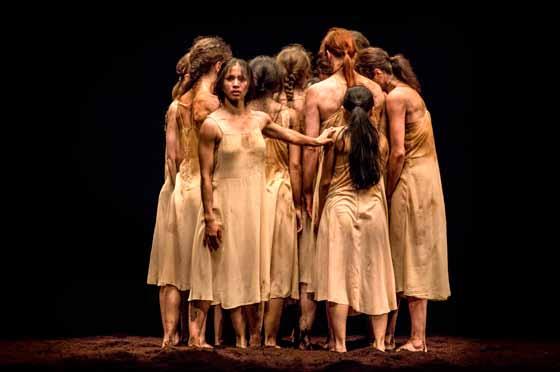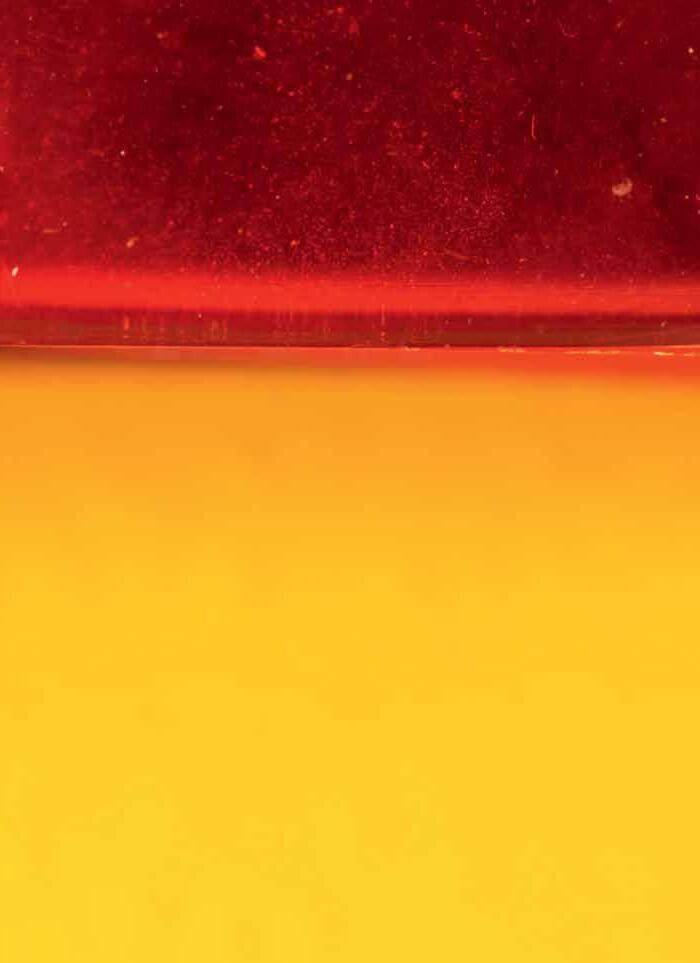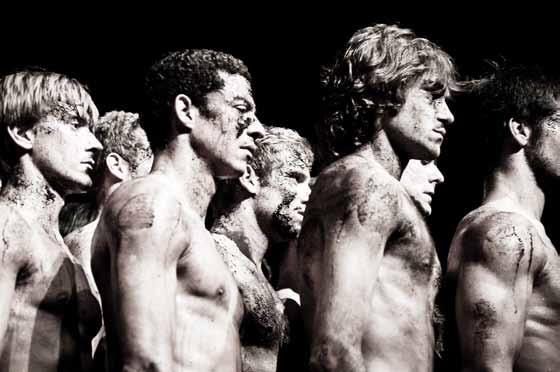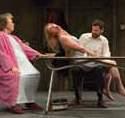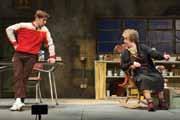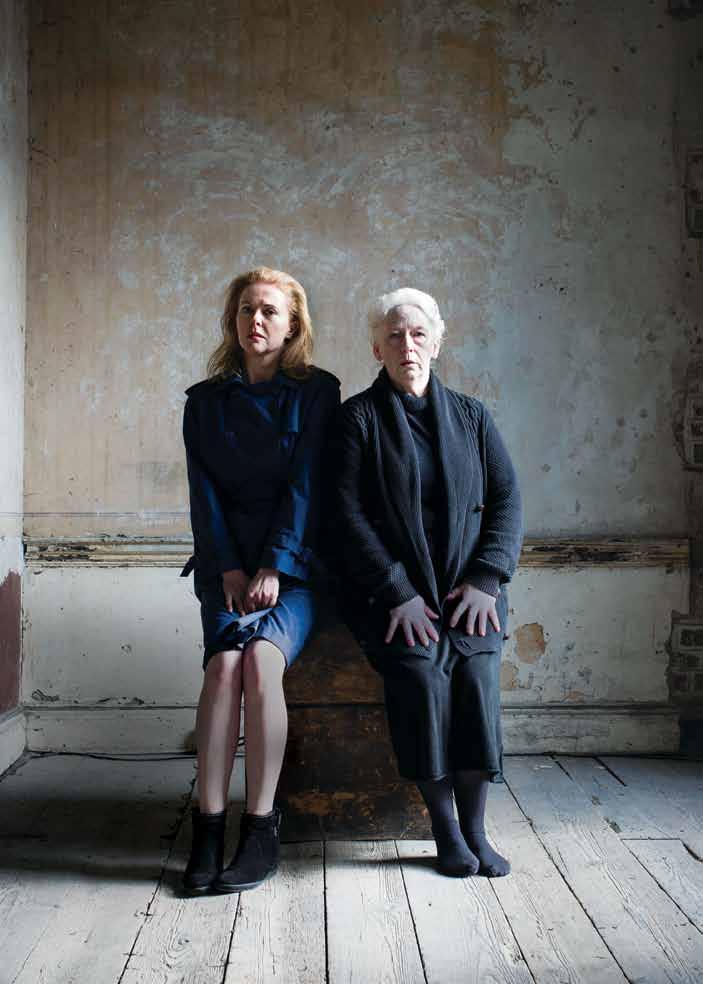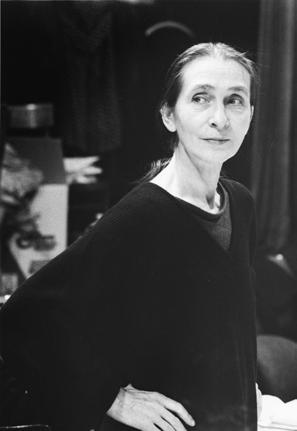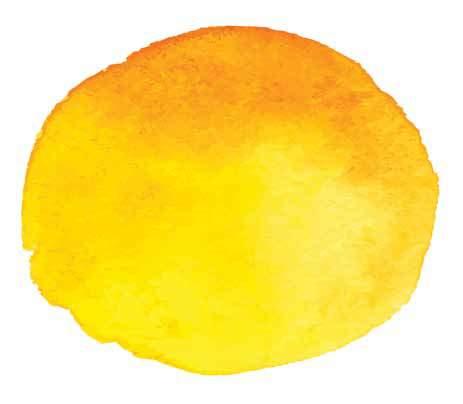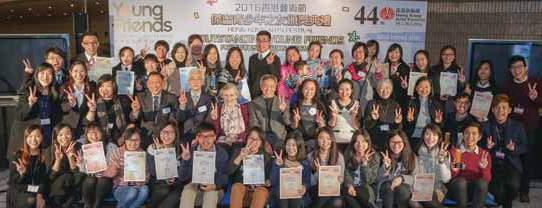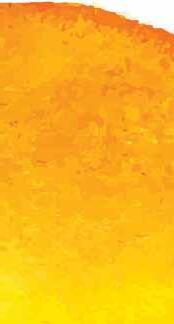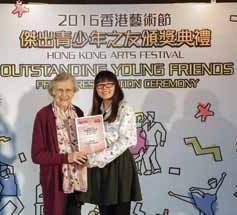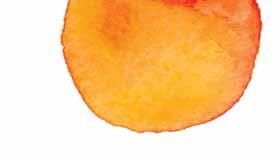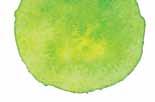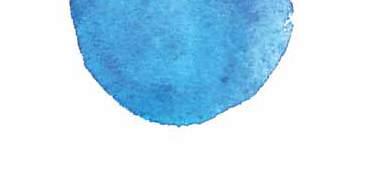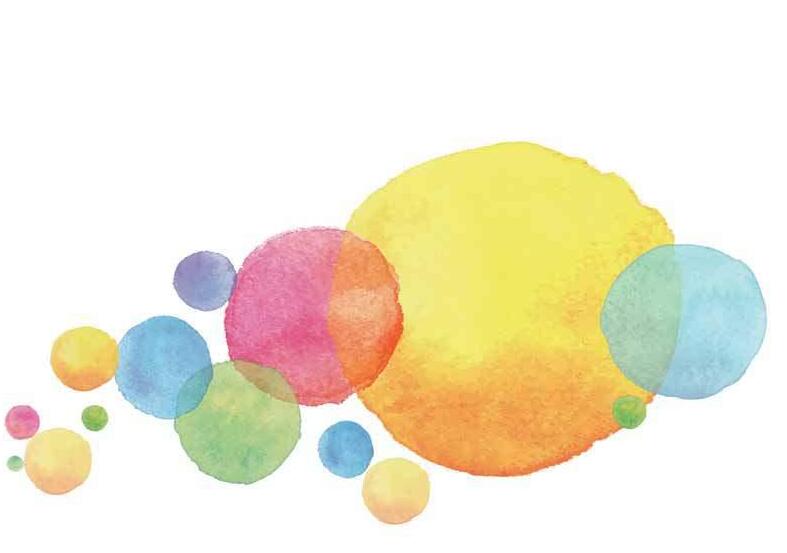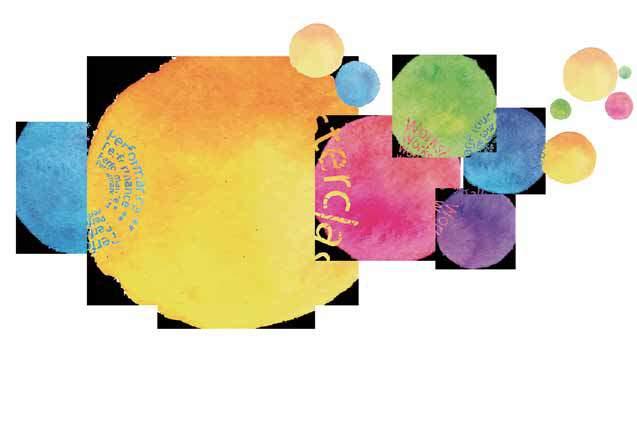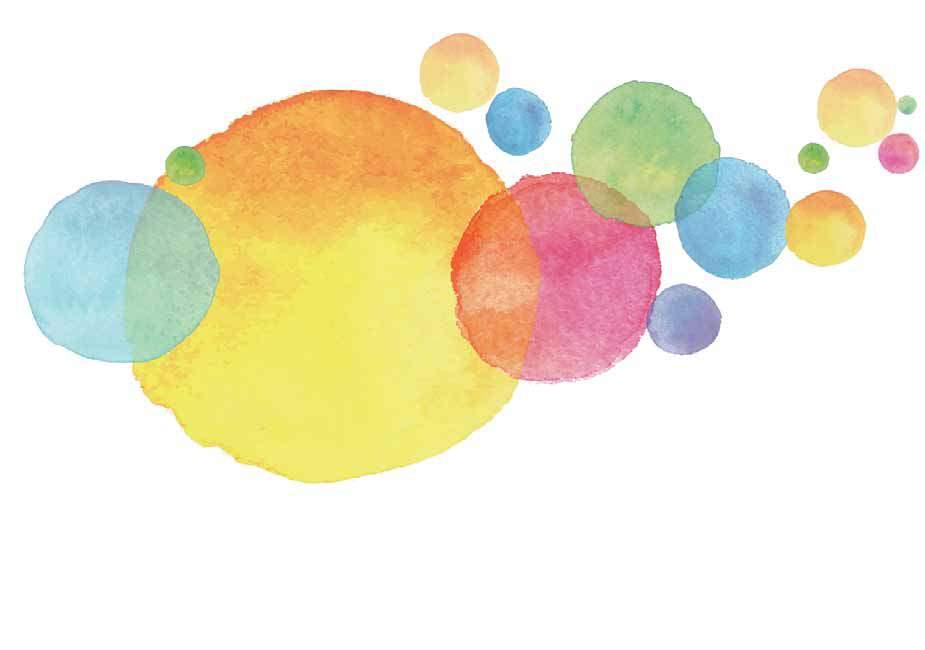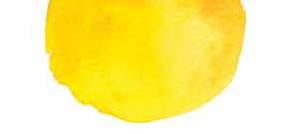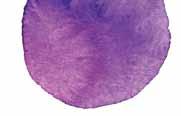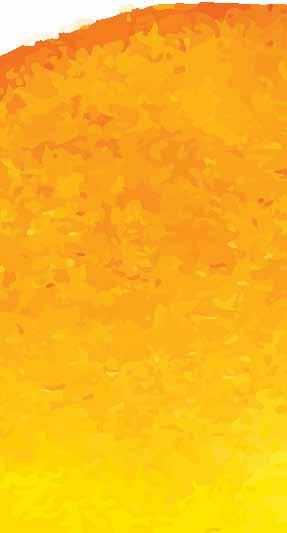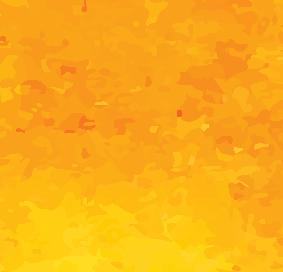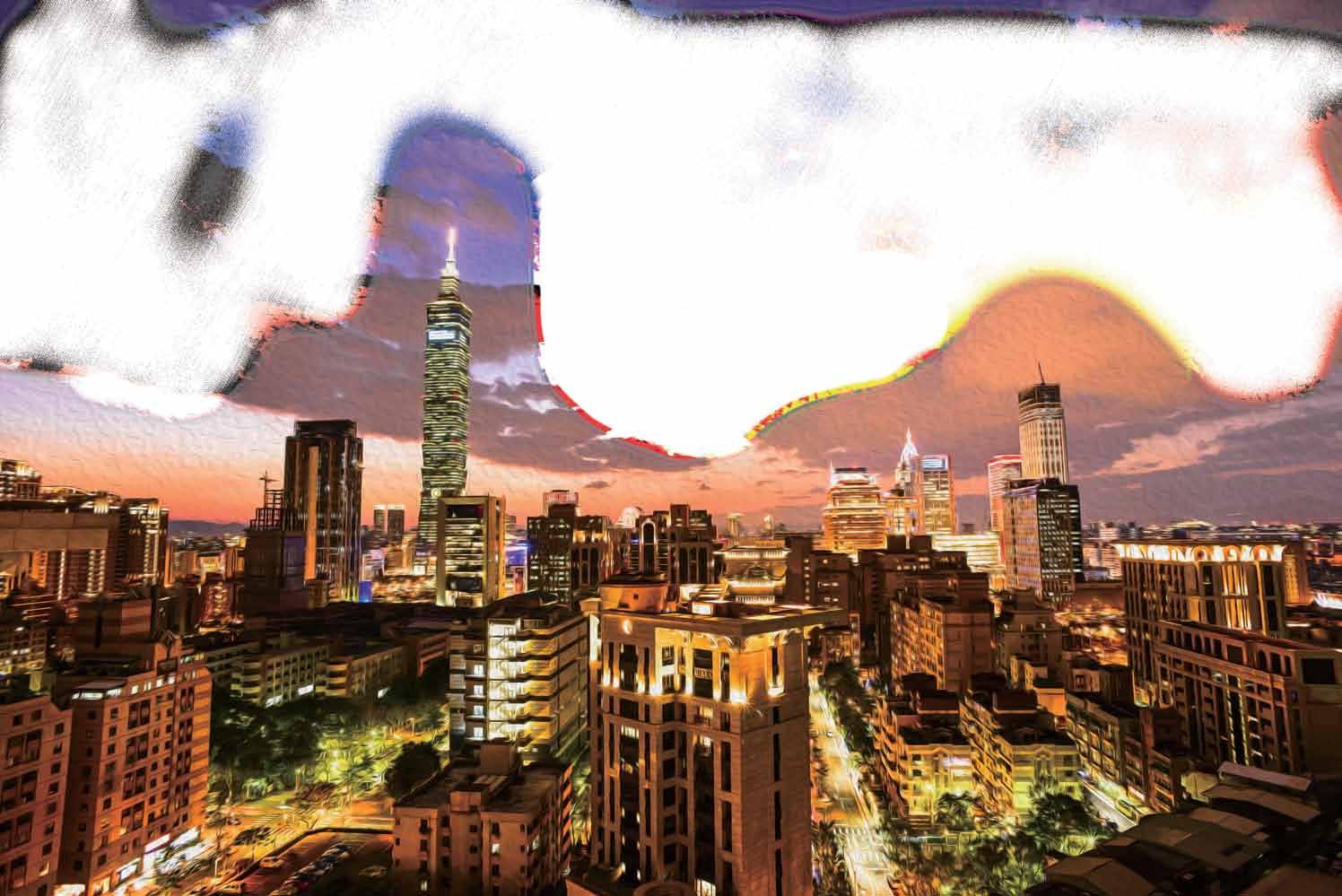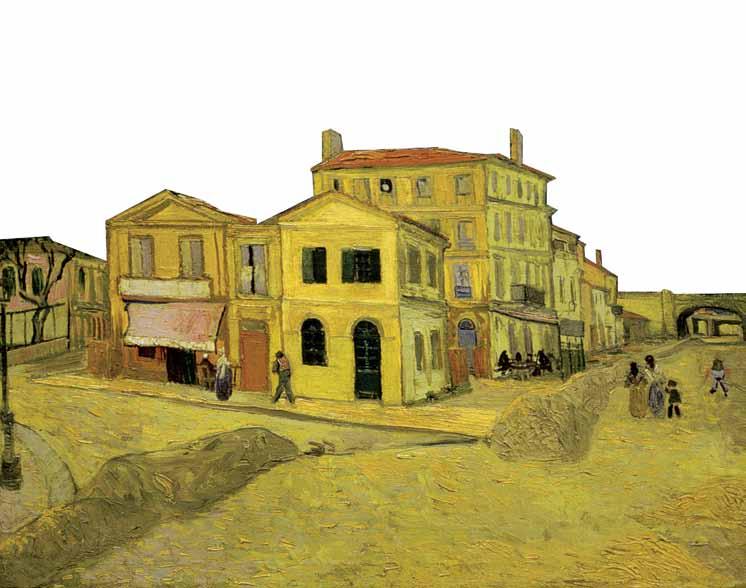Tanztheater Wuppertal Pina Bausch
Café Müller & The Rite Of Spring
翩娜.包殊 烏珀塔爾舞蹈劇場
《穆勒咖啡館》及《春之祭》
3月 MAR
8-11
香港文化中心大劇院
Grand Theatre, HK Cultural Centre
演出長約 1 小時 45 分鐘,包括一節中場休息
Running time: approximately 1 hour and 45 minutes including one interval 本節目有裸露場面
This production contains nudity
封面照片 Cover Photograph: © Paulo Pimenta
敬請關掉所有響鬧及發光裝置。 Please switch off all sound- making and light- emitting devices.
請勿擅自攝影、錄音或錄影。 Unauthorised photography or recording of any kind is strictly prohibited.
網上追蹤香港藝術節 Follow the HKArtsFestival on www.hk.artsfestival.org Presents HKartsfestival
本場刊採用環保紙張印刷。Thisprogrammeisprintedonenvironmentallyfriendlypaper
《穆勒咖啡館》 Café Müller
翩娜.包殊作品 A piece by Pina Bausch
Music
浦塞爾 Henry Purcell Choreography
翩娜.包殊 Pina Bausch
舞台及服裝設計 Set and Costume Design
羅夫.波契克 Rolf Borzik Collaboration
瑪里恩.西圖 Marion Cito
漢斯.波普 Hans Pop
年復排指導 Rehearsal Director Restaging 2017
多明尼克.默西 Dominique Mercy
復排協作 Collaboration
瑪洛.艾勞多 Malou Airaudo
貝內迪克特.比麗葉 Bénédicte Billiet
海倫娜.派康 Helena Pikon
With Helena Pikon/Clémentine Deluy, Scott Jennings, Nazareth Panadero, Michael Strecker, Fernando Suels Mendoza, Azusa Seyama/Ophelia Young
Premiere
年 5 月 20 日,烏珀塔爾歌劇院 20 May 1978, Opera House Wuppertal
演出版權 Performance Rights
Verlag der Autoren, Frankfurt a.M. representing Pina Bausch Foundation, Wuppertal
《春之祭》
The Rite Of Spring ( Das Frühlingsopfer)
翩娜.包殊作品 A piece by Pina Bausch
音樂 Music
史達拉汶斯基 Igor Stravinsky
編舞 Choreography
翩娜.包殊 Pina Bausch
舞台及服裝設計 Set and Costume Design
羅夫.波契克 Rolf Borzik
協作 Collaboration
瑪里恩.西圖 Marion Cito
漢斯.波普 Hans Pop
2017 年復排指導 Rehearsal Directors Restaging 2017
芭芭拉.考夫曼 Barbara Kaufmann
茱麗.沙納漢 Julie Shanahan
高木賢治 Kenji Takagi
演出 With Emma Barrowman, Damiano Ottavio Bigi, Uwe Brauns, Lea Burkart, Michael Carter, Moonsuk Choi, Léonor Clary, Clémentine Deluy, Çaˆgda Ermis, Jonathan Fredrickson, Chang-Wen Hsu, Scott Jennings, Mariko Kida, Marie Hanna Klemm, Douglas Letheren, Anthony Lomuljo, Thusnelda Mercy, Jan Möllmer, Blanca Noguerol Ramírez, Breanna O´Mara, Raymond Liew Jin Pin, Azusa
Seyama, Oleg Stepanov, Kai Strathmann, Michael Strecker, Charlotte Virgile, Stephanie Troyak, TsaiWei Tien, Paul White, Simon Wolant, Chih-I Wu, Ophelia Young, Chih-Ming Yu, Tsai-Chin Yu
首演 Premiere 1975 年 12 月 3 日,烏珀塔爾歌劇院 3 December 1975, Opera House Wuppertal
音樂版權 Music Rights
The music is performed with the permission of BOOSEY & HAWKES MUSIC PUBLISHERS LIMITED.
演出版權 Performance Rights
Verlag der Autoren, Frankfurt a.M. representing Pina Bausch Foundation, Wuppertal
技術總監
Technical Director
約克.拉瑪舒芬 Jörg Ramershoven
燈光總監 Lighting Director
費爾南多.傑科恩 Fernando Jacon
音響 Sound
卡爾斯登.費沙爾 Karsten Fischer
舞台監督 Stage Manager
安德烈亞斯.多伊茨 Andreas Deutz
舞台技術 Stage Technicians
狄特里克.勞達 Dietrich Röder
馬田.溫特舒特 Martin Winterscheidt
服裝 Wardrobe
西維亞.法蘭高 Silvia Franco
安德烈亞斯.邁亞 Andreas Maier
芭蕾指導 Ballet Master
克里斯汀.比德爾曼 Christine Biedermann
音樂協作/琴師 Musical Collaboration/ Pianist
馬提亞斯.伯克特 Matthias Burkert
物理治療師 Physiotherapist
白恩德-烏維.馬山 Bernd- Uwe Marszan
舞團總監 General Director
德克.赫西 Dirk Hesse
總監助理 Personal Assistant to Directors
莎賓.赫斯林 Sabine Hesseling
巡演統籌 Tour Coordination
克勞廸婭.易爾文 Claudia Irman
Pina Screening and Sharing
Past event
藝術行政講座 Talk on Art Management 10.3 (五 Fri ) 11.30am-1:00pm
本講座由烏珀塔爾舞蹈劇場舞團總
監德克.赫西主講。
This talk is conducted by Dirk Hesse, General Director of Tanztheater Wuppertal.
香港歌德學院 Goethe- Institut Hong Kong
英語主講 In English
憑邀請參加 By invitation
更多加料節目詳情及網上報名 More Festival PLUS and online registration: www.hk.artsfestivalplus.org
《館》中窺社會
關於《穆勒咖啡館》,多明尼克.默西不願多說, 而且自有他的道理。偉大的德國舞蹈劇場大師翩 娜.包殊在 1978 年創作了這齣獨幕舞劇,當時, 來自法國的傑出舞者默西是第一陣容舞蹈員,因 此親身經歷了它的問世。
與包殊後來的大部分作品相比,《穆勒咖啡館》 無論從長度上還是規模上,都算是一部小型作品。 但是它的影響力之大、之深、之遠,卻使之成為 包殊的代表作之一。
「對我來說,要形容翩娜的作品總是特別困難。
其實對她也是一樣。」一次倫敦的非正式訪談中, 默西坦言道。「它的豐富之處,在於每位觀眾都 能用自己的方法來解讀。如果你事前泄露太多, 他們就會有所預期,然後……」默西的聲音低了 下去,彷彿全世界他最不想做的事,就是解釋任 何一部包殊舞蹈中交織重疊的動機與意義。
包殊作品其中一個精妙之處,就是並不需要解釋。
《穆勒咖啡館》中的情感如此坦蕩,形體動作如 此清晰,完全不說自明。儘管如此,默西終於肯 透露的一點點信息,還是讓人深受啟發。他簡略 地說道,《穆勒咖啡館》是關於「人類試圖尋找 彼此,嘗試回應彼此」。
很多能稱之為當代舞蹈的作品,都是可以任人詮 釋的,《穆勒咖啡館》也在其列。這場約 50 分 鐘的演出的確就發生在一間「咖啡館」中,而且 說不定與包殊兒時她父母所開的那間相差不多。
1984 年,舞評人阿琳.克羅斯在《紐約客》對此 劇發表了一篇頗有微言的評論,並在其中尖刻地 指出:這咖啡館活像「精神病院的餐廳」。
不管怎麼說,包殊舞台上的咖啡館的確沒有什麼 生氣,有種打烊後的面貌和氛圍。台上只有很少 幾張咖啡桌,卻散佈着許多椅子。在這如幽冥般 清冷的空間裏,只有寥寥數人。其中最顯眼的是
一位身著睡裙,彷彿在夢遊的女性角色。(值得 一提的是,這一極端疏離、鬼魂般的角色,原本 由包殊本人演出,並且一演就演了幾十年。)另
一位女性角色相比之下沒有那麼出世,但也身穿 相似的白色薄身長裙,在自己的世界中遊蕩。此 外,還有一位與她關係既緊張,又溫柔的男性, 以及一位頭戴紅色假髮,腳踩高跟鞋,踏着小碎 步跑來跑去的女性。最後,還有另一位男性 也 許是咖啡館侍者 適時搬動椅子,以幫助其他 人。
《穆勒咖啡館》的音樂用了五首細膩、傷感的詠 歎調,選自浦塞爾的《仙后》。據默西說,包殊 早就想將這些音樂用於某部作品。他還說,包殊 親身參與演出並非計劃中事,但發生得自然而然: 「翩娜是這部作品的一部分。這在當時已是不爭 事實。」但似乎仍然缺少什麼,仍然需要一樣能 奠定基調、讓作品更完整的東西。「翩娜想到在 台上擺些椅子,但又沒人可以照管這些椅子。所 以羅夫.波契克(他不是舞者,而是設計師)不 得不擔起這職責。很顯然,這就是我們所缺的 椅子,以及照管椅子的人。」想到這裏,默西露 出了微笑,「羅夫並不是舞者,但事實就是這樣, 因此他成了作品的一部分。」
有人說,《穆勒咖啡館》充滿難以言喻的悲傷; 也有人認為它格外振奮人心。這部作品包括很多 包殊珍視的主題:孤立與需求,殘忍與堅韌,熱 情與同情。其本質是包殊對人生百態一種本能的 理解,既可以美輪美奐,也可以痛苦不堪。在這 部令人惴惴不安又難以忘懷的舞劇中,人類的身 體不過是脆弱又漸強的皮囊,承載着數之不盡的 情感。
中譯:曾逸林
Dominique Mercy is reluctant to say too much about Café Müller , but with good reason. This superb French-born dancer was in the first cast of the one-act production made by the great German dance-theatre guru Pina Bausch in 1978, and was therefore directly involved in its birth.
Café Müller is, in terms of its length and scale, a somewhat chamber-sized piece compared to most of the later Bausch productions. Its reach and cumulative influence, however, are large and wide. It is, in other words, one of her key creations.
“It’s always very difficult for me, as it was for Pina, to describe her work”, Mercy admits during a brief but warm informal interview in London. “The richness of it is in how each person who sees it
can refer personally to what’s going on onstage. If you give too much away about it in advance they anticipate and…” Mercy’s sentence trails away, as if the last thing in the world he would want to do is explain the many-layered motives and meanings behind any of Bausch’s dances.
One of the beauties of Bausch is that you don’t really need to have her work explained. And, in its emotional honesty and the physical clarity of its staging, a dance-theatre performance like Café Müller can indeed speak for itself. Still, it is illuminating when Mercy can offer even a morsel of insight into what Café Müller is about. “Human beings trying to find each other” he says simply, “to try and react to each other”.
So much of what is considered contemporary dance performance is, of course, open to interpretation, and that certainly holds true for Café Müller. The approximately 50-minute performance is indeed set in a café, and perhaps one similar to that which Bausch’s own parents managed in her youth. Arlene Croce, in quite a dismissive review for the New Yorker magazine in 1984, pinpointed it as “the canteen of a mental hospital”.
In any event, Bausch’s stage cafe is essentially deserted – it definitely has an after-hours look and feel – and the set strewn with few tables but plenty of chairs. There are only a handful of occupants in this lonely, limbo-like location. They include, significantly, a woman in a nightgown who behaves like a sleepwalker (It’s worth noting that
this poignantly remote, even ghostly figure was originally danced by Bausch herself, and that it is a role she kept on appearing in throughout the succeeding decades). There is another woman, less disengaged but likewise drifting about in her own world and clad in a similarly flimsy white dress. There is also a man who has a fraught yet tender relationship with her, another woman in a red wig who totters about in heeled shoes, and a second fellow – a waiter, perhaps – who tries to help the others out by moving the chairs about when necessary.
The soundtrack of Café Müller features five delicate, possibly mournful arias from Purcell’s Faerie Queen , music which Mercy says Bausch had always wanted to use for a performance. Regarding her participation onstage, it was apparently unplanned but seems to have happened rather organically. “It became clear at one point that Pina was part of it”, as Mercy puts it. But something was still missing, something that would set a tone and ideally make this production feel more complete. “Pina had an idea to put some chairs onstage, but nobody was there to take care of those chairs. So Rolf [Borzik, a designer rather than a dancer] had to do it. It was obvious that this was what was missing – the chairs and someone to deal with them. Rolf was not a dancer”, says Mercy, smiling at the memory, “but that’s what happened and why he was in the piece”.
Café Müller has been described as both ineffably sad and yet peculiarly uplifting. It contains many of the themes that remained near and dear to Bausch: human isolation and need, cruelty and tenacity, passion and compassion. At its core is an innate understanding of the patterns by which people live, and which can be as beautiful as they are painful or troubled. It is, ultimately, both a haunted and haunting piece of theatre in which living bodies are the fragile yet strong repositories for a multitude of feelings.
Café Society Donald Hutera
© Jochen Viehoff
《祭》之力量
1913 年,史達拉汶斯基作曲、尼金斯基編舞的《春 之祭》於巴黎首演,引起騷動和強烈批評。(尼 金斯基的編舞近乎失傳,大半個世紀後才獲重 構。)這場「臭名昭著」的首演繼而成為劇界傳 奇,更可謂現代主義歷史的其中一個轉折點,對 後世影響深遠。史達拉汶斯基的樂譜,啟發了無 數編舞,創造出各有千秋的舞蹈版本,試圖攀上 他的音樂高峰,借肢體語言挖掘其中豐富寶藏。
在我近 40 年的職業觀舞生涯中,曾看過很多版本 的《春之祭》,而其中對我最有意義的一部,就 是翩娜.包殊在 1975 年為烏珀塔爾舞蹈劇場而作 的版本。由黝黑泥土覆蓋的舞台令人印象深刻, 而整場表演更是震懾人心 緊張急促、發自肺 腑、扣人心弦,對震耳的音樂、翻滾的音浪之掌 控更是駕輕就熟、渾然天成,將簡單又宏大,讓 人深感不安的故事講述得驚心動魄。
尼金斯基為《春之祭》所定副標題是《俄羅斯異 教徒之畫》(共兩部分)。按照最初想法,舞蹈 講述的是一個部落為慶祝春天到來,象征性地犧 牲一名處女的故事。在第二幕中,「獻祭處女」 不斷跳舞,直到精疲力盡而死。
史達拉汶斯基的音樂澎湃洶湧,為了使舞蹈能夠 與之抗衡,尼金斯基完全顛覆了古典芭蕾的動作 套路,轉而尋求一種充滿野性和原始力量的風格。
另一邊廂,包殊用自然元素構建了一個使人過目 難忘的舞台,而從舞者身體中迸發出的那種肝膽 俱裂的力量,無論在情感上還是形體上,都再難 有人能出其右。包殊的概念與編舞獨當一面,與 史達拉汶斯基氣勢如虹的音樂可謂勢均力敵,這 是很多《春之祭》舞蹈版本難以企及的境界。
我曾有幸與多明尼克.默西交談。這位生於法國 的舞者是烏珀塔爾舞蹈劇場的台柱之一,一直與 翩娜.包殊合作無間,直到 2009 年包殊去世。
儘管默西並未參與《春之祭》的創作,卻多次以 舞者身份演出該舞,因此對這部內涵深刻的作品 有着獨到見解。
默西說:「我第一次跳這支舞時,就發誓(當時 我還在台上),我再也不跳它了!那裏面的能量 如此之強大,你根本無暇多想。不過這也是對翩 娜特別重要的一點。她總是把自己放在觀眾的位 置上,在她那裏,頭腦是在這兒的。」說着,他 做了個手勢,恰如其分地指向自己的臟腑。
「這就像一場旅行,」默西繼續說道,「又像一 趟難忘的歷程。一旦你踏上舞台,就絕不能離開。 相反,你必須經歷台上的一切,而且完全投入其 中。這是最難教給新人的一點。要怎麼教,才能 讓每位舞者都各自去體驗?」
默西說,要演出包殊的《春之祭》,首先需要在 各方面都儲有強大的力量。「演出過後,你會徹 底精疲力竭,同時感到抱歉,因為剛才台上(對 『獻祭處女』)發生的一切,你多少有些責任。 不過這一切都不得不發生。」犧牲者可怕的命運 無從避免,烏珀塔爾舞蹈劇場的舞者,將這種不 可抗拒的必然性清清楚楚地傳達給了我們。史達 拉汶斯基的音樂本已很震撼,包殊的演繹更是驚 為天人。如此原始、狂野的編舞,不僅讓舞者們 忘我投入,也在觀眾心中掀起驚濤駭浪。
中譯:曾逸林
The Might of ‘Rite’
The infamous premiere of Igor Stravinsky’s The Rite Of Spring in Paris in 1913, and Vaslav Nijinsky’s choreography for it (essentially lost until its reconstruction nearly three quarters of a century later), is the stuff of theatrical legend and one of the seminal moments of modernism. Stravinsky’s score has since inspired countless dance-makers to climb that musical mountain and use movement to try and dig down deep and mine all of its richly dynamic properties. The results have, no surprise, been variable.
Out of all the versions of The Rite Of Spring – or, to use the French title, Le sacre du printemps – seen during my nearly four decades of professional
dance-watching, the one that means the most to me was created by Pina Bausch for Tanztheater Wuppertal in 1975. Set on a stage covered in dark earth, the performance remains a knockout –urgent, viscerally gripping and harnessing with complete and seemingly instinctive mastery the clamorous, churning rhythms of the orchestration and the simple yet epic and dramatically disturbing narrative it serves.
The subtitle of Nijinsky’s creation was Pictures from Pagan Russia in Two Parts . The primal story, as originally conceived, concerns a tribe celebrating the arrival of spring through the symbolic sacrifice of a virgin. In the second scene
the Chosen Maiden, as she has been dubbed, dances herself to death.
Nijinsky inverted the basic poses of classical ballet in an effort to find a brutal, primitive style that would suit the surging pulse of Stravinsky’s score. Bausch, for her part, crafted a dance production with an unforgettably elemental setting and a gut-busting group power that is hard to surpass in terms of emotional and kinetic impact. Her concept and choreography hold their own against Stravinsky’s titanic music, something many renderings of the work in often fail to even to begin to do.
I spoke with Dominique Mercy, a Frenchborn dancer who has been one of Tanztheater Wuppertal’s mainstays for decades and was thus a close collaborator with Bausch right up until her death in 2009. Although he was not part of the creation process of The Rite Of Spring , he did dance it repeatedly many times later and can therefore offer unique insights into this profoundly charged work.
“The first time I danced it,” Mercy reveals, “I swore to myself [while he was still] onstage, Never again! There is such physicality in it that you don’t need to think too much. But then that’s what was so important for Pina. Always she put herself with the audience, and in a place where the brain was down there.” Here he gestures, appropriately enough, towards his guts.
“It’s such a trip,” Mercy continues, “and such a journey. One you get onstage you don’t leave. You go instead through this increasing involvement with what’s happening. That’s one of the difficult parts when you teach it to someone new. How do you teach it so each dancer has his or her own experience of it?”
Performing Bausch’s The Rite Of Spring , says Mercy, ultimately requires enormous reserves of strength in all departments. “At the end you’re so exhausted. You also feel sorry that you are responsible somehow for what has just happened onstage [to the Chosen Maiden], and yet it has to happen.” It is the terrible, overwhelming sense of inevitability about the sacrificial victim’s fate which the entire Tanztheater Wuppertal ensemble is able to impart to us. Like these brilliantly committed dancers, we too are swept up in Bausch’s singularly spectacular, savage interpretation of Stravinsky’s thrilling music.
Donald Hutera
1996 年,天星小輪上的翩娜.包殊
Pina Bausch on the Star Ferry in 1996
© tse ming chong
翩娜與香港、藝術節
第一次接觸翩娜和她的作品,是她 1993 年率團來 港演出《1980》,後來知道她總是隨團外訪,每 一次演出都不會掉以輕心 之前來港七次,唯一
是 2008 年《月滿》因病而沒有隨團。之後一年, 她便離開了,留下四十多個作品和一眾傷心的翩 娜迷。
《1980》讓我和大部份的香港觀眾初次認識到翩 娜的舞蹈世界(雖然早在七十年代末,在《春之 祭》首演之後不久,她已將之帶來香港 當時香 港已緊貼世界潮流),對人性的刻劃和憐憫直指 人心,對舞台的非線性的處理又叫人大開眼界。
但翩娜與香港的緣份,卻是由 1997 年的《抹窗人》 而來。這部由香港藝術節協會,香港歌德學院及 翩娜.包殊烏珀塔爾舞蹈劇場聯合製作的作品, 把翩娜與香港從創作人和表演地的關係,提昇至 創作人與創作對象的位置。翩娜 1996 年來港採 風,與藝術節同仁和不少本地的藝術家都自始成 了朋友。
因為《抹窗人》,翩娜加深了對香港的認識。但 在她舞台上呈現的香港我們既熟悉也陌生。當年 還是傳媒身份的我,在翩娜的大本營烏珀塔爾劇 院看這個作品的世界首演時,當《獅子山下》歌 聲響起,坐在一眾外國人之中,聽看着兩個世界
的交叠,感覺很是奇特。1997 年香港回歸,身份 轉換之際,大師為我們造像,這次委作意義非比 尋常。
香港是首個邀請翩娜創作的亞洲城市,而且也大 概是日本以外,翩娜作品演得最多的亞洲城市, 《抹窗人》之後四年,康文署帶來里斯本委約她 創作的《火熱的瑪祖卡舞》。《月滿》過後,香 港藝術節陸續為我們帶來《康乃馨》和《死而復 生的伊菲格尼》,讓我們有機會一窺翩娜早期的 作品風格 今年更把翩娜兩個代表作《春之祭》 及《穆勒咖啡室》帶來香港,刻劃的既是男女 兩性,也是個體與群體的關係對碰,又適逢回歸 二十周年,實在饒有深意。
1997 、2017 ,如果不在 2037 年,期待 2047 年, 《抹窗人》能在香港舞台重現。
Pina with Hong Kong, and the Arts Festival Daisy Chu
It was 1993 when I came across Pina Bausch and her works for the first time. She was here in Hong Kong to perform 1980 . Later, I realised that she was always touring internationally with her dance company, and that she never seemed to take a performance lightly – she visited Hong Kong seven times. Only once, in 2008, did she not come along due to sickness. It was only one year after that she passed away, leaving behind more than 40 pieces of work and a mass of devastated fans.
1980 gave myself and the wider Hong Kong audience a chance to get to know the world of Pina – she had already brought her Rite of Spring to Hong Kong in the late 70s, not long after it was premiered – at that time Hong Kong was keeping up with global arts trend. Her intense portrayal of human nature and compassion towards mankind went straight to the heart, and her non-linear treatment of the stage created an eye-opening experience for the audience. Nonetheless, Pina’s closest connection with Hong Kong can be found with the 1997 production of Der Fensterputzer (The Window Washer). This co-production by the Hong Kong Art Festival Society, Goethe-Institut Hong Kong and Tanztheater Wuppertal Pina Bausch elevated the relationship between Pina and Hong Kong, from that between a creative artist and a mere performance location, to that between a creative artist and a creative inspiration. Ever since Pina came to Hong Kong in 1996 (a trip from which she was able to learn a lot about the local culture here), she established a heartfelt friendship with the Hong Kong Arts Festival as well as numerous local artists.
Der Fensterputzer allowed Pina to deepen her understanding of Hong Kong. However, the city depicted by her onstage is both familiar and distant to Hong Kong audiences. At that time, I was working in the media, and I experienced a most peculiar feeling while watching the world premiere of the piece in Wuppertal. I was sitting amongst a crowd of foreigners, seeing two worlds overlap, in sight and sound, with the timeless Hong Kong song Below the Lion Rock in the background. 1997 was of course “handover” year, when Hong Kong’s shift of identity was also encapsulated by maestro Pina through her ingenious art. This piece of work still bears an extraordinary weight of significance.
Hong Kong was the first Asian city to invite work by Pina, and it is also one of the Asian cities, other than Japan, where Pina’s work is most frequently performed. Four years after Der Fensterputzer was created, the Leisure and Cultural Services Department brought us Pina’s Masurca Fogo , commissioned in Lisbon. Hong Kong Arts Festival has since then presented Vollmond , Nelken and Iphigenia auf Tauris, providing us with opportunities to catch glimpse of Pina’s style in her earlier works. This year, two of Pina’s masterpieces
The Rite Of Spring and Café Müller are visiting Hong Kong. These famous pieces feature vivid portrayals of not only gender relationships, but also the clash and conflict between the individual and the community. Adding to the profound meaning, these performances coincidentally take place in the year marking the 20th anniversary of Hong Kong’s reunification with China.
1997, 2017… If not in 2037, we shall look forward to 2047 and another epoch defining year, when perhaps we may have Der Fensterputzer coming to Hong Kong once again.
Translated by Chan Sun-yee
1997, 2017... If not in 2037, we shall look forward to 2047 and another epoch defining year, when perhaps we may have Der Fensterputzer coming to Hong Kong once again.
翩娜.包殊歷久不衰的藝術
2009 年,六十八歲的翩娜.包殊驟然離世。僅僅 一個月後,九十歲高齡的美國編舞簡寧漢也撒手 人寰。兩位編舞大師的相繼謝世在舞蹈界引起震 動,但他們的偉大名聲卻絲毫未變。
對於熟悉舞蹈的人,僅僅「翩娜」二字便已足夠。 除非你對這位二十世紀最具影響力、最受尊敬的 編舞家留下的寶貴遺產一無所知,否則無需提起 她的姓氏。作為著名的烏珀塔爾舞蹈劇場之頭腦 (和心臟),她的興趣永遠是探索人為何而動, 是人怎樣面對他人。她的作品 尤其是後期作品 都源於個人視角。一系列拼貼畫般驚為天人的 舞作,全來自她的思考,內容不僅包括兩性關係, 還有更深刻的關於人生美好與痛苦負擔的思考。
包殊和其舞團在世界各大都市的駐團經歷,成為 她許多作品的靈感源泉,其中包括香港。包殊是 香港藝術節的老朋友,這段深厚友誼大概在 1996 年她和舞團駐港三周時便已埋下種子。包殊曾在 日記中寫道:「我們在這裏吃了那麼多美食,我 想有必要創作一部新作,專門講吃。」當然,他 們所做的絕非只有品嚐美食而已。包殊和舞者們 此行目的,是收集對香港的印象,然後在包殊謹 慎、深入的指導下,進行深刻的內省,從自我內 心尋找創作素材。此行的結果便是由香港藝術節 協會,香港歌德學院及翩娜.包殊烏珀塔爾舞蹈
劇場聯合製作的《抹窗人》,1997 年於香港首演。 這是一部典型的多層次拼貼風格舞作,肢體表達 豐富,意象中滿是荒謬、溫柔,還有極度徒勞和 大量浪漫元素,叫人印象深刻。
過去二十年間屢次亮相香港藝術節後,烏珀塔爾 舞蹈劇場重返香港藝術節,帶來令人激動的兩個 作品。兩齣舞蹈都是包殊上世紀七十年代中期作 品,其中《穆勒咖啡館》首演於 1978 年。在其後
當奴.胡特拉
很長一段時間裏, 這是唯一一部包殊會親自主演 的舞團作品。她穿着一襲白色薄身長裙,以夢遊 般的舞步在桌椅間穿梭,如鬼魂在台上飄蕩。其
他幾位人物似是她臆造,又或是她過去的影子, 在台上慢慢行走,或踏着碎步小跑,甚至橫衝直 撞,將桌椅掀翻。他們間或嘗試接近彼此,彷彿
這樣能讓他們從共有的憂傷中得到釋放。整部作 品如夢境一般,昏暗冷寂,讓人難以忘懷。
另一部則是包殊在 1975 年編舞的《春之祭》。這
部由史達拉汶斯基寫的芭蕾舞 1913 年首演之後成 為眾多編舞的試金石。包殊的版本是其中一個最 優秀的表表者:原始,帶着名副其實的土腥味(整
個舞台都由黝黑的泥土覆蓋),大量舞者用狂亂 的舞步和全身爆發出的能量表現一場生育崇拜的
獻祭。他們抖動身軀跳完全舞,在最後的高潮時 精疲力竭地倒下,讓觀眾屏息凝神,激動不已。
你不需要是熟悉包殊作品的追隨者,也能在其中 感受到包殊作品中獨有的痛苦和狂喜。對我來說, 任何觀看包殊作品的機會都是一種難得的榮幸, 不管有時它們顯得多麼冗長與自我沉溺。但是對 於包殊本人,每一次創作新作品,都是一個艱難 且令人焦慮不堪的過程。包殊有次說道:「每一 次,你都是初學者。」
我曾見過包殊一次,就在她去世前一年,她監製 的烏珀塔爾年度舞蹈藝術節上。此次近距離的接 觸,讓我親眼目睹了她對身邊人有多麼關心,特 別是對她的舞者和藝術節的嘉賓。在雲門舞集的 演後餐會上,包殊正好坐在我旁邊,而我的另一 側則是好友和同行,雲門舞集的藝術總監林懷民。 包殊舉止優雅,但吃得不多,她看起來那麼腼腆, 所以我首先開腔,展開了我們簡短的對話。我告 訴她,我靠寫舞蹈及藝術評論為生。她的回覆簡 潔明了,而且時機拿捏得恰到好處。「我不喜歡 評論家。」她低着頭,一邊切着盤中餐一邊說道。
片刻之後,包殊抬起頭,親切地對我說:「當然, 不包括你。」
關於包殊,我還有過另一次令人難忘的偶遇,但 不是與她本人,而是和她舞團美得令人窒息的舞 者茱莉.安.斯坦扎克。那是 2012 年夏天,《世 界城市》系列演出剛剛落幕。《世界城市》是 2012 倫敦藝術節的一個重要環節,連續上演了包 殊十部大作(包括《抹窗人》),都是根據舞團 在世界各地駐團經歷而作。該系列在莎德勒之井 劇院上演。莎德勒之井劇院不僅是蜚聲國際的倫 敦舞蹈表演重地,更和烏珀塔爾舞蹈劇場有着長 久而堅固的夥伴關係。那天,我正在莎德勒之井
劇院門口等候巴士,看到斯坦扎克走近,就抓住 機會,感謝她在整個系列中的精采演出。斯坦扎 克很健談,坦言她和其他舞者都很疲憊,但也倍 感欣慰,終於完成了這一馬拉松演出 。她說,《世 界城市》是包殊去世前正在策劃的眾多項目之一。
這十齣舞劇的演出,帶有一種沉重的痛感,因為 舞團數月後即將招募新舞者,而這將是首批未親 身接觸過包殊的成員。
然而這次偶遇對我意義最深刻的,是斯坦扎克對 包殊構思新作時狀態的描述。據她說,這位舞蹈 劇場的「女祭司」會在排練室外踱來踱去,一邊 吞雲吐霧,一邊用英語,斯坦扎克強調,不是德 語、法語或任何其他語言,不斷問自己:「Where’s the beauty ? 」(美在何處?)這則珍聞在我腦 中揮之不去,也讓我瞬間明白了自己在不同文化 與藝術中尋找的事物 無論是為了工作,還是僅 僅作為「另一位」觀眾。某種程度上,我一直在 尋找美,而在包殊的作品中,我找到了。也正是 因為如此,我和全世界的觀眾,都會一而再再而 三地回來,渴求更多。
中譯 曾逸林 本文原載於 2017《閱藝》
@ Grace Lang
‘Where’s the Beauty?’
The enduring art of Pina Bausch
Donald Hutera
Pina Bausch’s shockingly sudden death in 2009 at age 68 – just a month or so before the 90 year-old American choreographer Merce Cunningham’s less surprising demise – left the dance world reeling. But in both cases the colossal reputation of these great artists remains intact.
To dance insiders she is still simply Pina, the surname only necessary when speaking to those who know little or nothing about the cultural legacy of one of the most influential and intensely revered choreographers of the 20th century. As the head (and heart) of the world-famous Tanztheater Wuppertal her abiding interest was in how human beings move and, no less importantly, behave towards each other. It was a personal vision realised – especially later in her career – as a series of patchwork epics built from Bausch’s preoccupation with the relations between the sexes and, beyond that, the sometimes beautiful yet often painful burden of being human.
Many of these productions were inspired by residencies Bausch and company undertook in

various world metropolises, including Hong Kong. Bausch was, in fact, a longstanding friend of the Hong Kong Arts Festival. That close relationship was perhaps most deeply rooted in the threeweek sojourn she and her dancers made to Hong Kong in 1996. “We’ve eaten so much food here that I think we should do a piece just about eating”, Bausch wrote in a diary later made public. But of course they were all doing much more than dining. Their collective goal was to gather impressions of Hong Kong and, under Bausch’s careful and penetrating guidance, also look inside themselves for the raw material for a new work. The result was Der Fensterputzer ( The Window Washer ), a typically layered, collage-style piece made up of physical expressions and indelible imagery of absurdity, tenderness, extreme futility and extravagant romance. Co-produced by the Hong Kong Art Festival Society, Goethe-Institut Hong Kong and Tanztheater Wuppertal Pina Bausch, it premiered in Hong Kong in 1997.
Having returned to HKAF on numerous occasions since then, Tanztheater Wuppertal now present a
© Lazlo Szito
sensational double-bill reaching back to the mid1970s. Dating from 1978, Café Müller was for a long while after the sole work in the Wuppertal repertory in which Bausch herself appeared as a wraith-like somnambulist drifting about in a flimsy white shift amongst a collection of tables and chairs. A handful of other characters –possibly figments of her imagination, or figures from her past – shuffle, trot or lunge around the set, scattering the furnishings and occasionally attempting to get close to each other and perhaps thereby liberate themselves from a shared melancholy. It’s dreamy, bleak and unforgettable.
The latter could easily be applied to Bausch’s stunning 1975 take on The Rite Of Spring Stravinsky’s infamous music has since its 1913 premiere become a rite of passage for scores of choreographers. Bausch’s version is one of the best, a feral and literally earthy – the stage is covered in rich, dark soil – fertility ritual enacted with frenzied and full-bodied intensity by a huge cast. They shudder and shake their way through a performance that leaves them exhausted at
the climax and their audience impressed and exhilarated.
You needn’t be a ready-made acolyte of Bausch’s brand of agony and ecstasy to be rewarded by it. Certainly for me any opportunity to see her work, no matter how long-winded or self-indulgent it sometimes becomes, remains a privilege. For Bausch herself, however, giving birth to a new work could be arduous and anxiety-ridden “Each time”, she once remarked, “you are a beginner”.
I met Bausch once, the year before she died, in Wuppertal during the annual festival she oversaw. There I was able to observe first-hand how solicitous she was of the well-being of the people around her, especially the artists in her company and those she was hosting as part of the festival. We were at a post-performance buffet for Cloud Gate Dance Theatre. I sat at a table between her and a dear friend and colleague, Cloud Gate’s artistic director Lin Hwai-min. Bausch ate delicately and not a great deal and, because she seemed so shy, I initiated our brief conversation. I told her
© Ludovica Bastianini
that I wrote about dance and the arts for a living. Her response was succinct and beautifully timed. “I don’t like critics”, she said, gazing down and cutting something on her plate. A moment later, however, she looked up and added, with genuine graciousness, “But not you, of course”.
I had another memorable encounter, not with Bausch but rather the drop-dead-gorgeous dancer Julie Anne Stanzak. It was in London in the summer of 2012 just after the last show in the World Cities season. The latter was a series of ten Bausch blockbusters (including Der Fensterputzer ) that all existed thanks to the company’s different creative residencies abroad.
I spotted Stanzak approaching me as I waited at the bus stop in front of Sadler’s Wells, London’s major international dance venue and one with which Tanztheater Wuppertal now enjoys a solid and ongoing association. Seizing the opportunity, I thanked Stanzak for the entire season. She was wonderfully chatty, admitting that she and the other dancers were all very tired but so glad to have completed this marathon of performances. World Cities, as Stanzak revealed, was among the
many projects Bausch was plotting at the time of her death. There was an extra poignancy to these ten shows, given that in just a few months the company would be auditioning for new members –significantly, the first dancers to join who wouldn’t have had any direct contact with Bausch herself.
But what meant the most to me was Stanzak’s description of Bausch in the process of devising a show. Apparently the high priestess of tanztheater would pace the hallway outside the rehearsal studio, chain-smoking as she asked herself in English and not, as Stanzak pointed out, German or French or any other language, “Where’s the beauty?” It’s a haunting tidbit, this, and one that instantly crystallised what it is that I seek – both professionally and as “just another” audience member – from just about all of the art and culture to which I’m exposed. On some level I always want beauty and, with Bausch’s work, I get it. It’s what keeps me – and audiences around the world –coming back for more.
This article was originally published in FestMag 2017.
翩娜.包殊 導演及編舞 翩娜.包殊 1940 年生於德國索林根, 2009 年於 烏珀塔爾離世。在埃森鎮的福克旺學校師隨庫爾 特.佑斯,學得超卓的舞蹈技巧。 1973 年秋天獲 烏珀塔爾劇場總監阿諾.烏斯坦霍法邀請出任編 舞後不久,將舞團易名為烏珀塔爾舞蹈劇場。儘 管起初頗受爭議,烏珀塔爾舞蹈劇場逐漸成為享 譽國際的藝團。其糅合詩意和日常生活元素的演 出風格,為世界舞蹈發展帶來決定性的影響。翩 娜.包殊飲譽國際,獲獎無數,為當代最重要的 編舞家之一。
Pina Bausch Director and Choreographer Pina Bausch, was born in 1940 in Solingen and died in 2009 in Wuppertal. She received her dance training at the Folkwang School in Essen under Kurt Jooss, where she achieved technical excellence. Soon after the director of Wuppertal’s theatres, Arno Wüstenhöfer, engaged her as choreographer, from autumn 1973, she renamed the ensemble the Tanztheater Wuppertal. Under this name, although controversial at the beginning, the company gradually achieved international recognition. Its combination of poetic and everyday elements influenced the international development of dance decisively. Awarded some of the greatest prizes and honours world-wide, Pina Bausch is one of the most significant choreographers of our time.
羅夫.波契克
舞台及服裝設計
羅夫.波契克 1944 年生於波蘭波茲南, 1980 年於德國埃森離世。於福克旺學校修讀設計時認識舞者與編舞家翩 娜.包殊。自 1973 年到英年早逝這段期間,波契克為烏珀塔爾舞蹈劇場擔任佈景及服裝設計,並有顯著的影響力。 他所設計的空間與服裝風格與別不同,既詩意盎然又貼近生活。波契克習慣運用水與泥土等自然元素,而其設計 的服裝看似從日常生活中信手拈來,卻優雅而華麗。波契克的作品為舞蹈劇場空間與服裝帶來了全新的啟示,在
Set and Costume Design
Rolf Borzik was born 1944 in Posna´n, and died 1980 in Essen. He studied design at the Folkwang School in Essen where he first met dancer and choreographer Pina Bausch. From 1973 until his untimely death he designed sets and costumes for the Tanztheater Wuppertal and had a decisive influence on its look. The spaces and clothes Borzik created were unusual; poetic yet closely related to the everyday. He continually played with natural elements (water, earth), and his costumes seemed lifted from daily life yet also elegant and opulent. His work opened up a whole new insight into dancing spaces and clothing, remaining influential for years after his death.
© Wilfried Krüger
翩娜.包殊烏珀塔爾舞蹈劇場
翩娜.包殊是烏珀塔爾舞蹈劇場的創作核心,歷 時三十六年之久。包殊對人類的存在深感興趣, 總以一雙好奇的眼睛不偏不倚地細察這個世界, 並深信自己的審美觸覺,與舞蹈員及藝術家一起 創作了四十四部作品。作品詩情畫意、畫面震撼、 別出心裁,來自對現實生活的細膩觀察。包殊的 訓練方式,清楚反映出包殊觀察入微。包殊會向 舞者詢問一些簡單的個人問題,以故事、動作、 佈景等各種方式,把他們的答案融入創作中。包 殊對於真實性的感受,在彼得.帕布斯和羅夫. 波契克的舞台設計上展露無違,從舞蹈員的動作 和服裝,都能看見泥土、草、水等基本元素。多 個國際性聯合製作,亦是不斷探索研究的成果。
烏珀塔爾舞蹈劇場在每個地方 無論是意大利、 日本、巴西、香港或土耳其 駐團的發現經過, 都為舞團帶來文化及美學上的影響。
1973 / 74 舞季開始時,包殊接手負責烏珀塔爾舞 蹈劇院的舞蹈部門,摒棄了古典芭蕾舞蹈風格, 創作了她獨樹一幟,糅合舞蹈、動作、言語、服 裝及舞台佈置的形式,起初飽受觀眾及樂評家抨 擊。包殊所發展的舞蹈劇場,與當時劇院一直上 演的芭蕾舞蹈風格截然不同。舞蹈一開始,舞者 們就以獨立角色出場,以舞蹈、歌唱、說話、時 哭時笑的方式,展現他們的故事。包殊的作品以 鮮明對比及變化回應主題,往往展現了人與人之 間的關係,以及男女之間的角力,場景的排序不 拘一格,引人無限聯想。因此,包殊為表演藝術 帶來一場革命,永久改變了劇場、古典和現代舞 蹈的演化模式,並影響了一整代編舞家的作品。
包殊的信念是「尋找生命的語言」,因此她不但 把舞蹈表達得淋漓盡致、前無古人,甚至為這一 種藝術形式帶來翻天覆地的改變。這樣看來,每 一次演出,甚至是每一次以全新班底演出,包殊
的作品也在變化中。不論在烏珀塔爾舞蹈劇場, 還是多次巡演所到的世界各地,包殊大部分的作 品至今仍有上演。這不僅因為包殊作品在主題及 美感上的永恆性,還是因為一直以來舞者們的薪 火相傳。現時,包括巴黎歌劇院芭蕾舞團及巴伐 利亞國家芭蕾舞團在內的不少舞團,都曾演出包 殊的幾部作品。自從包殊於 2009 年離世,她的作 品仍一直活在烏珀塔爾舞蹈劇場的舞者們心中。
烏珀塔爾舞蹈劇場這個國際舞團正面對一個獨特 的挑戰,就是在重演包殊作品或為作品重新選角 時,保留「翩娜的精神」。
從 2017 / 18 舞季開始,翩娜.包殊烏珀塔爾舞蹈 劇場的監製兼藝術總監將由一名「外人」接任。
阿杜爾菲.白恩德將會和烏珀塔爾舞蹈劇場的舞 者和協作者合作,繼續演出包殊的龐大劇目,讓 舞團數十年來巡迴演出所建立的伙伴關係維持下 去;亦會招攬當代編舞家,每年編寫新作品,帶 領烏珀塔爾舞蹈劇場進入一個充滿活力的未來。
新任監製兼藝術總監把包殊的作品描述為「人間 的愛、勇氣、對人性深處的興趣,以及一種問多 於答的能力」。這亦是阿杜爾菲.白恩德希望秉 承下去,邁向未來的方向。
烏珀塔爾舞蹈劇場能夠不斷演變,緊貼時代脈搏, 無疑也是包殊本人所願。包殊在一次難得的演講 上,曾這樣說:「不斷發問,沒有盡頭;不斷尋找, 沒有盡頭。這個無窮無盡的歷程,本身就是一件 美事。」
英譯:史提夫.莫里斯
Tanztheater Wuppertal Pina Bausch
For 36 years Pina Bausch was the creative nucleus of the Tanztheater Wuppertal. With her keen interest in human existence, an unbiased and constantly inquisitive eye, and impressive faith in her own aesthetic sensibility, together with her dancers and artistic collaborators she created a total of 44 pieces. Their poetry, powerful images and ingenuity result from an examination of real life. This is seen particularly clearly in Pina Bausch’s working methods, asking her dancers simple, personal questions and using the answers, in the form of stories, movements or scenes, to create her pieces. Her feeling for authenticity was reflected in the stage sets of Peter Pabst and Rolf Borzik, in which elemental materials such as earth, grass and water left visible marks on the movements and costumes of the dancers. The international co-productions were also the result of intensive research processes. Whether Italy, Japan, Brazil, Hong Kong or Turkey, every country the company discovered on their extended residencies influenced the Tanztheater Wuppertal’s pieces culturally and aesthetically.
When Pina Bausch took over the dance department of the Wuppertal Theatres at the start of the 1973/74 season, and abandoned classical ballet to create her particular form of interplay between dance, movement, speech, costume and sets, the scepticism from audiences and critics was enormous initially. The dance theatre she developed was completely different from the ballet performed at the house till then. Right from the start the dancers exposed themselves as individual characters, revealing their stories by dancing, singing, talking, sometimes laughing and crying too. With individual scenes playfully sequenced, and calling up countless associations, the pieces approach their respective subjects using rich contrast and variety, with human relationships and altercations between the sexes frequently playing a big role. Thus Pina Bausch unleashed a revolution in performing arts which permanently altered the evolution of theatre, of classical and modern dance, and influenced the work of a whole generation of choreographers.


With her credo “finding a language for life” Pina Bausch did not only expand the expressive potential of dance to an unseen extent, she also fundamentally changed the artform itself. In this sense her pieces also change – not only at every performance but with every new casting. The fact that the majority of Pina Bausch’s pieces are still performed, in Wuppertal and throughout the world during the many tours, is thanks not only to their thematic and aesthetic timelessness, but also to the long-term practice of handing over from one generation of dancers to the next. Now companies such as the Paris Opera Ballet and the Bavarian State Ballet have also performed a few of her works. Since Pina Bausch’s death in 2009 her pieces have lived on in the dancers of the Tanztheater Wuppertal. A particular challenge facing the international ensemble is to get a sense of “Pina’s spirit” when recasting and reviving productions.
From the 2017/18 season onwards an “outsider” will be taking over as Intendant and artistic director of the Tanztheater Wuppertal Pina Bausch: along with the company’s dancers and creative collaborators, Adolphe Binder will maintain Pina Bausch’s huge repertoire along with the partnerships formed through decades of touring, and lead the company into a dynamic future by bringing in contemporary choreographers and generating new works each year. The new leader sees Pina Bausch’s work as characterised by “love of people, courage, interest in human depths and the ability to ask more questions than it answers.” And this is how Adolphe Binder wants to carry on into the future.
Continuing to bring the Tanztheater Wuppertal up to date through constant evolution is undoubtedly what Pina Bausch would have wished. In one of her rare speeches, she said, “The questioning never ends, and the search never ends. There is something endless about it, and that is the beautiful thing.”
Translated by Steph Morris
TANZTHEATER WUPPERTAL PINA BAUSCH
Intendant and Artistic Director from May 2017: Adolphe Binder
General Director: Dirk Hesse
Choreographer: Pina Bausch
Set Design: Peter Pabst, Rolf Borzik
Costume Design: Marion Cito, Rolf Borzik
Music: Matthias Burkert, Andreas Eisenschneider
Dancers
Regina Advento, Ruth Amarante, Pau Aran Gimeno, Emma Barrowman, Rainer Behr, Andrey Berezin, Damiano Ottavio Bigi, Michael Carter, Çaˆgda Ermis, Silvia Farias Heredia, Jonathan Fredrickson, Barbara Kaufmann, Ditta Miranda Jasjfi, Scott Jennings, Nayoung Kim, Daphnis Kokkinos, Eddie Martinez, Dominique Mercy, Blanca Noguerol Ramírez, Breanna O´Mara, Nazareth Panadero, Helena Pikon, Franko Schmidt, Azusa Seyama, Julie Shanahan, Julie Anne Stanzak, Julian Stierle, Michael Strecker, Fernando Suels Mendoza, Tsai-Wei Tien, Aida Vainieri, Anna Wehsarg, Paul White, Ophelia Young, Tsai-Chin Yu
Rehearsal Directors and Collaboration: Ruth Amarante, Bénédicte Billiet, Matthias Burkert, Marion Cito, Barbara Kaufmann, Daphnis Kokkinos, Dominique Mercy, Nazareth Panadero, Helena Pikon, Azusa Seyama, Julie Shanahan, Michael Strecker, Robert Sturm
Ballet Masters (guests): Etsuko Akiya, Christine Biedermann, Marguerite Boffa, Theo Clinkard, Ernesta Corvino, Amancio Gonzalez, Ed Kortlandt, Christine Kono-Pohlmann, Giorgia Maddamma, Roxane D`Orléans Juste, Janet Panetta, Antony Rizzi
Head of Artistic Administration: Robert Sturm
Personal Assistant to Directors: Sabine Hesseling
Technical Directors: Manfred Marczewski, Jörg Ramershoven
Lighting Director: Fernando Jacon
Presse and Public Relations: Ursula Popp
Assistant to General Director: Katharina Bauer
Tour Coordination: Claudia Irman
Organization and Collaboration: Hanna Bosbach
Collaboration Organization and Video: Grigori Chakhov
Stage Management: Andreas Deutz
Lighting Assistants: Jo Verlei, Peter Bellinghausen, Kerstin Hardt (guest.), Lars Priesack (guest)
Stage Technicians: Dietrich Röder, Martin Winterscheidt
Sound: Andreas Eisenschneider, Karsten Fischer
Properties and Merchandising: Jan Szito, Arnulf Eichholz, Susi Greiff (guest)
Pianist: Matthias Burkert
Collaboration Archiving: Bénédicte Billiet, Barbara Kaufmann, Grigori Chakhov
Wardrobe: Harald Boll, Silvia Franco, Andreas Maier, Ulrike Schneider
Shiatsu Therapist (guest): Ludger Müller
Osteopath (guest): Didier Brissaud
Physiotherapists (guests): Jochen Heisterbach, Bernd-Uwe Marszan, Wolfgang Kaiser
支持及協助 Support and Co-operation
•Academy of Jazz
Acorn Design
Alfie Leung Design
Alliance Francaise
AMC Pacific Place
•巴塞爾藝術展 Art Basel
•亞洲協會香港中心 Asia Society Hong Kong Center
•澳洲駐港總領事館 Australian Consulate-General, Hong Kong
•奧地利駐港總領事館
Austrian Consulate General in Hong Kong
•樺利廣告有限公司 Avanny Advertising Co Ltd
•龍堡國際 B P International
•香港肯德基 Birdland (HK) Limited
•英國文化協會 British Council
Broadway Cinema
•百老匯院線 Broadway Circuit
•Broadway The One
•明愛白英奇賓館 Caritas Bianchi Lodge
•牛棚藝術村 Cattle Depot Artist Village
•中區遮打花園 Chater Garden
•城市當代舞蹈團 City Contemporary Dance Company
•加拿大駐香港總領事館
Consulate General of Canada in Hong Kong and Macau
•埃及駐港總領事館 Consulate General of Egypt
•愛沙尼亞駐港總領事館 Consulate General of Estonia
•芬蘭駐香港總領事館
Consulate General of Finland in Hong Kong
•法國駐港澳總領事館
Consulate General of France in Hong Kong and Macau
•德國駐香港總領事館
Consulate General of Germany in Hong Kong
•希臘駐香港總領事館
Consulate General of Greece in Hong Kong
•印度駐香港總領事館 Consulate General of India
•愛爾蘭駐港總領事館
Consulate General of Ireland, Hong Kong
•意大利駐香港領事館
Consulate General of Italy in Hong Kong
•馬里駐港領事館 Consulate General of Mali
•羅馬尼亞駐香港特別行政區和澳門特別行政區總領事館
Consulate General of Romania in HKSAR and Macau SAR
•西班牙駐香港總領事館
Consulate General of Spain in Hong Kong
•瑞士駐香港總領事館
Consulate General of Switzerland in Hong Kong
•捷克共和國駐港總領事館
Consulate General of the Czech Republic in Hong Kong
•俄羅斯駐香港總領事館
Consulate General of the Russian Federation in Hong Kong SAR, PRC
•美國駐港澳總領事館
Consulate General of the United States, Hong Kong & Macao
•澳門特別行政區政府文化局
Cultural Affairs Bureau of the Macao S.A.R. Government
•德勤企業管理咨詢(香港)有限公司
Deloitte Consulting (Hong Kong) Limited dreamoffish Limited
•風采中學 Elegantia College
•誠品香港 Eslite Hong Kong
•粉嶺禮賢會中學 Fanling Rhenish Church Secondary School
•藝穗會 Fringe Club
•鳳溪廖萬石堂中學
Fung Kai Liu Man Shek Tong Secondary School
•港威酒店 Gateway Hotel
•六國酒店 Gloucester Luk Kwok Hong Kong
•香港歌德學院 Goethe-Institut Hong Kong
•香港君悅酒店 Grand Hyatt Hong Kong
•青苗琴行 Greenery Music
•快達票香港有限公司 HK Ticketing
•香港畫廊協會 Hong Kong Art Gallery Association
•香港藝術行政人員協會
Hong Kong Arts Administrators Association
•香港藝術中心 Hong Kong Arts Centre
•香港藝術學院 Hong Kong Art School
•香港浸會大學 Hong Kong Baptist University
音樂系 Department of Music
語文中心 Language Centre
圖書館 Library
•香港大會堂 Hong Kong City Hall
•香港文化中心 Hong Kong Cultural Centre
•香港知專設計學院 Hong Kong Design Institute
•香港經濟貿易辦事處
Hong Kong Economic and Trade Office
•香港黃金海岸酒店 Hong Kong Gold Coast Hotel
•香港文學生活館 Hong Kong Literature House
•香港海事博物館 Hong Kong Maritime Museum
•香港管弦樂團 Hong Kong Philharmonic Orchestra
•香港聖公會 Hong Kong Sheng Kung Hui
•香港太空館 Hong Kong Space Museum
•香港旅遊發展局 Hong Kong Tourism Board
•印度遊樂會 Indian Recreation Club
•香港洲際酒店 InterContinental Hong Kong
Intox Design & Communication Co. Ltd.
•益普索香港 Ipsos Hong Kong Limited
•港島太平洋酒店 Island Pacific Hotel Hong Kong
•鍾詠賢芭蕾舞學校 Ivy Chung School of Ballet
•王仁曼芭蕾舞學校 Jean M. Wong School of Ballet
JellyBin Limited
•高山劇場 Ko Shan Theatre
•九龍木球會 Kowloon Cricket Club
•九龍公園 Kowloon Park
•Kubrick
•葵青劇院 Kwai Tsing Theatre
•光華新聞文化中心 Kwang Hwa Information & Culture Centre
Lanson Place Hotel, Hong Kong
•中央人民政府駐香港特別行政區聯絡辦公室 Liaison Office of the CPG in HKSAR
•立方國際青年公寓 M3 International Youth Apartment
•馬哥孛羅香港酒店 Marco Polo Hongkong Hotel
•MEC Interaction
•外交部駐港特派公署 Ministry of Foreign Affairs in HKSAR
MOViEMOViE
•李鏡輝先生 Mr Alpha Li
•岑智頤先生 Mr Henry Shum
•梁儉豐先生 Mr Kenny Leung
•黃銘熙先生 Mr Ronny Wong
•馬師雅女士 Ms Alice Ma
•呂沅蔚女士 Ms Evains Lui
•南蓮園池 Nan Lian Garden
•荷蘭駐港總領事館 Netherlands Consulate General in Hong Kong
PALACE ifc
•柏斯琴行 Parsons Music Limited
•新約舞流 Passoverdance
•卓滙達有限公司 Patsville Company Ltd
•電訊盈科 PCCW
•元創方味道圖書館 PMQ Taste Library
•香港太子酒店 Prince Hotel, Hong Kong
•Ray's Production
•區伯平牧師 Rev Au Pak-ping
•挪威駐香港總領事館
Royal Norwegian Consulate Hong Kong
•帝都酒店 Royal Park Hotel
•香港帝景酒店 Royal View Hotel
•沙田大會堂 Sha Tin Town Hall
•先鋒廣告製作有限公司 Sin Fung Advertising Production Co., Ltd.
•事必達推廣有限公司 Speedy Promotion Limited
•聖約翰座堂 St John's Cathedral
•Steam Studio
•辰衝圖書有限公司 Swindon Book Co. Ltd.
•台北經濟文化辦事處
Taipei Economic & Cultural Office
•美國會所 The American Club Hong Kong
•藝林文具印刷有限公司 The Artland Co Ltd
•香港中文大學
The Chinese University of Hong Kong
戲曲資料中心 Chinese Opera Information Centre
音樂系 Department of Music
•香港城市大學 The City University of Hong Kong
英文系 Department of English
城大創意媒體學院 School of Creative Media
•香港教育大學
The Education University of Hong Kong
文化與創意藝術學系 Department of Cultural and Creative Arts
•The Grand Cinema
•灣景國際 The Harbourview
•香港演藝學院
The Hong Kong Academy for Performing Arts
中國戲曲學院 School of Chinese Opera
戲劇學院 School of Drama
音樂學院 School of Music
•香港鄉村俱樂部 The Hong Kong Country Club
•香港木球會 The Hong Kong Cricket Club
•香港理工大學
The Hong Kong Polytechnic University
文化及設施推廣處
Culture Promotion and Events Office (CPEO)
學生宿舍(何文田)
Student Halls of Residence (Homantin)
•香港科技大學
The Hong Kong University of Science and Technology
人文學部 Division of Humanities
藝術中心 Center for the Arts
學生住宿及舍堂生活事務處
Student Housing and Residential Life Office
•皇家太平洋酒店
The Royal Pacific Hotel and Towers
•中環石板街酒店 The Pottinger Hong Kong
•香港大學 The University of Hong Kong
音樂系 Department of Music
通識教育部 General Education Unit
香港大學美術博物館 University Museum and Art Gallery
Cultural Management Office
圖書館 Library
香港大學博物館學會
The University of Hong Kong Museum Society
•通利琴行 Tom Lee Music Company Ltd
Trickstation
•三角關係 Trinity Theatre
•荃灣公園 Tsuen Wan Park
•土耳其駐港總領事館 Turkish Consulate General in Hong Kong
•不加鎖舞踊館 Unlock Dancing Plaza
•城市售票網 URBTIX
•進富印刷公司 Wealthy Step Printing Co.
wine etc
•X Social Group
•香港基督教青年會(港青) YMCA of Hong Kong
•青年廣場 Youth Square
•赤豚事務所 Zhu Graphizs
贊助人
永遠名譽會長
梁振英先生 PATRON
The Honourable C Y Leung
邵逸夫爵士 HONORARY LIFE PRESIDENT Sir Run Run Shaw, CBE(1907-2014)
執行委員會 EXECUTIVE COMMITTEE
主席
副主席
義務司庫
委員
查懋成先生 Chairman Mr Victor Cha
詹偉理先生 Vice Chairman Mr James Riley
李錦榮先生 Honorary Treasurer Mr William Li
劉鎮漢先生
梁靳羽珊女士
廖長江先生
黃敏華女士
李義法官
任志剛先生
梁卓偉教授
鄭惠貞女士
Members Mr Anthony Lau
Mrs Yu-san Leong
The Hon Martin Liao, SBS JP
Ms Nikki Ng
The Hon Mr Justice Ribeiro
Mr Joseph Yam, GBM JP
Professor Gabriel Leung, GBS, JP
Ms Margaret Cheng
節目委員會 PROGRAMME COMMITTEE
主席 李義法官 Chairman The Hon Mr Justice Ribeiro
委員
紀大衛教授
盧景文教授
毛俊輝先生
譚榮邦先生
姚珏女士
羅志力先生
白諾信先生
高德禮先生 +
約瑟.施力先生 +
Members Professor David Gwilt, MBE
Professor King-man Lo, MBE JP
Mr Fredric Mao, BBS
Mr Wing-pong Tam, SBS JP
Ms Jue Yao, JP
Mr Peter C L Lo
Mr Giorgio Biancorosso
Mr Douglas Gautier+
Mr Joseph Seelig+
財務及管理委員會 FINANCE COMMITTEE
主席
委員
李錦榮先生 Chairman Mr William Li
梁國輝先生
詹偉理先生
鄭惠貞女士
Members
發展委員會 DEVELOPMENT COMMITTEE
主席
副主席
委員
顧問
Mr Nelson Leong
Mr James Riley
Ms Margaret Cheng
梁靳羽珊女士 Chairman Mrs Yu-san Leong
雍景欣女士 Vice Chairman Ms Jane Yong
龐建貽先生
邱詠筠女士
鄭阮培恩女士
郭秀雲女士
姚祖輝先生
楊海燕女士
李業廣先生
李國寶博士
鮑 磊先生
梁紹榮夫人
夏佳理先生
Members
Mr Paulo Kin-yee Pong
Ms Winnie Chiu
Mrs Betty Yuen Cheng
Ms Sharon Kwok
Mr Andrew Yao
Ms Hoi-yin Yeung
ADVISORS
Mr Charles Y K Lee, GBM GBS JP
Dr The Hon David K P Li, GBM GBS JP
Mr Martin Barrow, GBS CBE JP
Mrs Mona Leong, SBS BBS MBE JP
The Hon Ronald Arculli, GBM CVO GBS OBE JP
名譽法律顧問 史蒂文生黃律師事務所 HONORARY SOLICITOR Stevenson, Wong & Co
核數師 羅兵咸永道會計師事務所 AUDITOR PricewaterhouseCoopers
香港藝術節基金會 HONG KONG ARTS FESTIVAL TRUST
主席 霍 璽先生 Chairman
管理人
陳達文先生
梁紹榮夫人
陳祖澤博士
地址 : 香港灣仔港灣道 2 號 12 樓 1205 室
Trustees
職員 STAFF
行政總監 何嘉坤 Executive Director Tisa Ho
節目 Programme
節目總監 梁掌瑋 Programme Director Grace Lang
副節目總監 蘇國雲 Associate Programme Director So Kwok-wan
節目經理 葉健鈴 陳韻妍 Programme Managers Linda Yip Vanessa Chan
助理節目經理 鍾維新 * 林淦鈞 * Assistant Programme Managers Chung Wai-sun* Lam Kam-kwan*
節目統籌 林 晨 * 李芷銦 * Programme Coordinators Mimi Lam* Patricia Lee*
節目行政主任 曹愷怡 * Programme Administration Officer Sabrina Cho*
項目經理 余瑞婷 * Project Manager Susanna Yu*
項目統籌
李頌威 * Project Coordinator Brian Li*
物流及接待經理 金學忠 * Logistics Manager Elvis King*
藝術家統籌經理 鄭瑋菁 * Head Artist Coordinator Virginia Cheng*
.技術 .Technical
製作經理 徐子宜 * Production Manager Tsui Tsz-yee*
助理製作經理 蘇雪凌 鄺嘉欣 * Assistant Production Managers Shirley So Karen Kwong*
技術統籌 許肇麟 * 陳焯華 * Technical Coordinators Boolu Hui* Billy Chan*
陳詠杰 * 陳佩儀 * Chan Wing Kit* Claudia Chan*
陳家彤 * 蕭健邦 * Doris Chen* Leo Siu*
林 環 * 歐慧瑜 * Nancy Lam* Rachel Au*
音響系統工程師 黎智勇 * Sound System Engineer Lai Chi Yung Martin*
.外展 .Outreach
外展經理 李冠輝 Outreach Manager Kenneth Lee
外展統籌
陳慧晶 * 張鼎丞 * Outreach Coordinators Ainslee Chan* Bell Cheung*
李詠芝 * 黃傲軒 * Jacqueline Li* Joseph Wong*
外展主任 林芷瑩 * 譚曉峯 * Outreach Officers Cordelier Lam* Mitch Tam*
.特別項目 Special Events
項目經理 李宛虹 * 鄺為立 * Project Managers Lei Yuen-hung* Kwong Wai-lap*
公關及市場顧問 楊佩雯 * PR and Marketing Consultant Wind Yeung*
高級節目統籌 黃俊偉 * Senior Programme Coordinator Terry Wong*
助理 戴維迪 * Assistant Davide Falco*
.出版 .Publications
英文編輯
中文編輯
電話 : 2824 3555 傳真 2824 3798, 2824 3722 電子郵箱 : afgen@hkaf.org
節目查詢熱線 2824 2430
出版:香港藝術節協會有限公司
Mr Angus H Forsyth
Mr Darwin Chen, SBS ISO
Mrs Mona Leong, SBS BBS MBE JP
Dr John C C Chan, GBS JP
Address: Room 1205, 12th Floor, 2 Harbour Road,Wanchai, Hong Kong Tel: 2824 3555 Fax: 2824 3798, 2824 3722 Email: afgen@hkaf.org
Programme Enquiry Hotline: 2824 2430
Published by: Hong Kong Arts Festival Society Limited
Printed by Cheer
黃迪明 * English Editor Timothy Wong*
陳妽宜 * Chinese Editor Chan Sun-yee*
副編輯 林尚諾 * Deputy Editor Sherlock Lam*
助理編輯 鍾佩妝 * Assistant Editor Eunice Chung*
市場推廣 Marketing
市場總監 鄭尚榮 Marketing Director Katy Cheng
副市場總監 胡銘堯 Associate Marketing Director Dennis Wu
市場經理 周 怡 張嘉麟 * Marketing Managers Alexia Chow Louis Cheung*
市場經理(票務) 梁彩雲 Marketing Manager (Ticketing) Eppie Leung
助理市場經理 吳嘉沛 * 楊 璞 * Assistant Marketing Managers Tiffany Ng* Michelle Yeung*
數碼營銷專員 陳閏霖 * Digital Marketing Specialist Ben Chan*
藝術行政見習員 莫文軒 * Arts Administrator Trainee Tony Mok*
市場見習員 梁麗希 * Marketing Trainee Charmaine Leung*
票務助理 李 彤 * Ticketing Assistant Lee Tung*
發展 Development
發展總監 余潔儀 Development Director Flora Yu
發展經理 蘇啟泰 Development Manager Alex So
發展經理 (捐款) 周曉東 * Development Manager (Donations) Joe Chau*
助理發展經理 張慧芝 * 譚樂瑤 Assistant Development Managers Anna Cheung* Lorna Tam
藝術行政見習員 莫穎哲 * Arts Adminstrator Trainee Esther Mok*
發展助理 蔡杏村 * Development Assistant Mandie Choy*
會計 Accounts
會計經理 陳綺敏 Accounting Manager Katharine Chan
高級會計主任 彭健欣 * Senior Accounting Officer Janice Pang*
會計主任 蘇永恆 * Accounting Officer Peter So*
行政 HR & Administration
人力資源及行政經理 馮紹昌 HR and Administration Manager Calvin Fung
人力資源及行政主任 簡凱彤 * HR and Administration Officer Vivian Kan*
行政秘書 謝凱婷 Executive Secretary Heidi Tse
接待員/初級秘書 李美娟 Receptionist/Junior Secretary Virginia Li
常務助理
黃國愛 General Assistant Bonia Wong
歌劇 / 戲曲 OPERA / CHINESE
OPERA
捷克布爾諾國家歌劇院
楊納傑克《馬克普洛斯檔案》
【一個不死女人的傳說】
指揮:馬可.伊雲奴域
導演:大衛.拉多克
三藩市歌劇院與香港藝術節聯合製作《紅樓夢》
作曲、編劇:盛宗亮
編劇:黃哲倫
導演:賴聲川
上海張軍崑曲藝術中心 《春江花月夜》
主演:張軍
粵劇《漢武東方》
◤
Sino Group Arts Celebration Series
National Theatre BrnoThe Makropulos Case by Janácek Conductor: Marko Ivanovic Director: David Radok
San Francisco Opera and the Hong Kong Arts Festival - Dream of the Red Chamber Music/Libretto: Bright Sheng Libretto: David Henry Hwang Director: Stan Lai
Shanghai Zhang Jun Kunqu Art CenterBlossoms on a Spring Moonlit Night Featuring: Zhang Jun
23,25/2 ◤ 7:30pm
CCGT 17-18/3 7:30pm
28/2-1/3 7:30pm
編劇:劉洵、龍貫天、黎耀威 Cantonese Opera - Emperor Wu of Han and his Jester Strategist Co-written by Liu Xun, Loong Koon-tin and Lai Yiu-wai STA 4/3 5/3 7:30pm 2:30pm
音樂 MUSIC
歌特柴爾與玻魯桑伊斯坦堡愛樂樂團
指揮:歌特柴爾
小提琴:瓦汀.列賓
鋼琴:吉爾素.奧納伊
Sascha Goetzel and the Borusan Istanbul Philharmonic Orchestra
Conductor: Sascha Goetzel
Violin: Vadim Repin Piano: Gülsin Onay
CCCH 15-16/2 8pm
薇莎拉茲鋼琴獨奏會 Elisso Virsaladze Piano Recital CHCH 18/2 8pm
歐伊斯特拉夫弦樂四重奏與薇莎拉茲
小提琴:巴雲洛夫、柏度夫 中提琴:比倫金
大提琴:哲林 鋼琴:薇莎拉茲
賽馬會本地菁英創作系列
《世紀.香港》音樂會
音樂總監/作曲:陳慶恩
David Oistrakh Quartet and Elisso Virsaladze Violin: Andrey Baranov, Rodion Petrov Viola: Fedor Belugin Cello: Alexey Zhilin Piano: Elisso Virsaladze
Jockey Club Local Creative Talents SeriesHong Kong Odyssey Music Director/Composer: Chan Hing-yan
捷克布爾諾國家歌劇院 National Theatre Brno
- 德伏扎克《聖母悼歌》
舞蹈 dANCE
巴伐利亞國家芭蕾舞團《舞姬》 編舞:馬利斯.佩蒂巴、帕翠斯.巴特 音樂總監:邁克爾.史密朵夫 與香港管弦樂團聯合演出
巴伐利亞國家芭蕾舞團二團芭蕾精選 編舞:巴蘭欽、納曹.杜亞陶、理察.斯寇、 奧斯卡.史萊莫、哈德.博納爾
多蘭斯舞團《電音踢躂》
編舞:米雪.多蘭斯、尼古拉斯.范楊
蒙特利爾爵士芭蕾舞團 編舞:伊錫克.加里尼、 安東尼斯.方尼亞達基斯、班傑明.米爾派德
亞太舞蹈平台﹝第九屆﹞ 史提芬妮.蕾克《雙》; Taldans《櫃》
翩娜.包殊烏帕塔爾舞蹈劇場 《穆勒咖啡館》及《春之祭》 編舞:翩娜.包殊
Bayerisches Staatsballett (Bavarian State Ballet)La Bayadère
Choreography: Marius Petipa, Patrice Bart
Musical Direction: Michael Schmidtsdorff
With the Hong Kong Philharmonic Orchestra
Bayerisches Staatsballett II (Bavarian State Ballet II) - Mixed Bill
Choreography: George Balanchine, Nacho Duato, Richard Siegal, Oskar Schlemmer, Gerhard Bohner
Dorrance Dance - ETM: Double Down Choreography: Michelle Dorrance, Nicholas Van Young APAL 24-25/2 8pm
Les Ballets Jazz de Montréal
Choreography: Itzik Galili, Andonis Foniadakis, Benjamin Millepied
Asia Pacific Dance Platform IX Stephanie Lake Company: Dual Taldans: Dolap
Tanztheater Wuppertal Pina BauschCafé Müller and The Rite Of Spring Choreography: Pina Bausch
香港賽馬會當代舞蹈平台 The Hong Kong Jockey Club Contemporary Dance Series -《明天你還愛我嗎?》香港篇 編舞:阿歷山度.沙朗尼、毛維
-《西西利亞狂想曲》 編舞:藍嘉穎、黃俊達、黃碧琪
-《舞鬥》
編舞:曹德寶、李偉能、廖月敏、莫嫣、 白濰銘、曾景輝、肖呈泳
CHCH 20/2 21/2 8pm
25-27/2 8pm
指揮 雅洛斯拉夫.基茲林克 - Dvo rák Stabat Mater Conductor: Jaroslav Kyzlink CCCH 26/2 5pm
- 楊納傑克《小交響曲》、《永恆的福音》、
《格拉高利彌撒曲》
指揮:雅洛斯拉夫.基茲林克
意大利協奏團蒙特威爾第《晚禱》(1610 年版)
指揮:里納爾多.亞歷山德里尼
- Janá cek Sinfonietta, The Eternal Gospel, Glagolitic Mass Conductor: Jaroslav Kyzlink CCCH 28/2 8pm
Concerto Italiano - Monteverdi Vespers of 1610 Conductor: Rinaldo Alessandrini CHCH 3/3 8pm
陳家保假聲男高音音樂會 Chan Ka-bo Countertenor Recital NLG-XHX 4/3 3pm, 7pm
海燕合奏團 Arianna Savall & Petter Udland Johansen - Ensemble Hirundo Maris CHCH 9/3 8pm
薩爾斯堡室樂團與安德塞斯基 指揮/鋼琴:安德塞斯
陳銳小提琴獨奏會
Camerata Salzburg and Piotr Anderszewski Conductor/Piano: Piotr Anderszewski CHCH 10/3 8pm
小提琴:陳銳 鋼琴:胡里奧.艾利薩德 Ray Chen Violin Recital Violin: Ray Chen Piano: Julio Elizalde CHCH 11/3 ◤ 8pm
佩特連科與奧斯陸愛樂樂團
指揮:佩特連科 大提琴:莫克 Vasily Petrenko and the Oslo Philharmonic Conductor: Vasily Petrenko Cello: Truls Mørk
朗格黑與辛辛那提交響樂團
指揮:朗格黑
管風琴:林芍彬 鋼琴:伽佛利佑克 Louis Langrée and the Cincinnati Symphony Orchestra Conductor: Louis Langrée Organ: Anne Lam Piano: Alexander Gavrylyuk
CCCH 14-15/3 ◤ 8pm
CCCH 17/3 ◤ 8pm
《香港小交響樂團.月魄》 Hong Kong Sinfonietta.Ethereal Is the Moon CHCH 12/3 8pm
香港藝術節:中樂無疆界—國
際作曲大賽決賽音樂會 HKAF: Chinese Music Without Bounds International Composition Competition Finals Concert CHCH 1/3 8pm
爵士樂/世界音樂 JAzz / WORld MUSIC
泰莉‧萊恩‧卡榮頓《騷靈情歌》 Terri Lyne Carrington’s Mosaic Project: LOVE AND SOUL CCCH 24/2 ◤ 25/2 8pm
珍.寶金《交響情人》
與香港管弦樂團聯合演出 Gainsbourg Symphonic with Jane Birkin With the Hong Kong Philharmonic Orchestra CCCH 3-4/3 8pm 庫斯圖里卡與無煙大樂隊 Emir Kusturica & The No Smoking Orchestra CCCH 7/3 8pm
世界音樂週末營 World Music Weekend
-巴拉克.斯索高 – 科拉琴獨奏 - Ballaké Sissoko – Solo Kora APAA 19/3 2:45pm -古斯.愛簡拿三重奏:蘇非音樂《愛之花園》- Kudsi Erguner Trio: Sufi Music Garden of Love APAA 19/3 5pm -瑪麗亞.芭莎拉蒂 - María Berasarte APAA 18-19/3 8pm
- Will you still love me tomorrow? Hong Kong Remix Choreography: Alessandro Sciarroni in
- Cecilia’s Rhasody Choreography: Blue Ka-wing, Ata Wong, Rebecca Wong Pik-kei
- Dance Off Choreography: Hugh Cho, Joseph Lee, Sudhee Liao, Jennifer Mok, Ming Pak, Terry Tsang, Sarah Xiao
拱 8 舞團《俄羅斯方塊》 編舞:艾利克.凱兒 Arch 8 - Tetris Choreography: Erik Kaiel
戲劇 THEATRE
《闖關一代男》 導演:塔提安娜.瑪拉連路 創作/設計/演出:德迪斯.菲利普斯
17 Border Crossings Direction: Tatiana Mallarino Creator/Designer/Performer: Thaddeus Phillips
7/3 8:15pm
8-11/3
紐約公共劇院《大選年的家庭》三部曲 導演/編劇:理察.尼爾遜 Public Theater - The Gabriels: Election Year in the Life of One Family Director/Playwright: Richard Nelson -《餓》 - Hungry CCST 22/2 25-26/2
-《你究竟想怎樣 ?》 - What Did You Expect? CCST
25-26/2 8:15pm 4:15pm -《某個時代的女人》 - Women of a Certain Age CCST 24-26/2 8:15pm
聲光劇團《黑漆漆馬戲團》 原著:彼夫 創作/演出:羅曼爾.貝門、尚-巴蒂斯特.馬勒
STEREOPTIK - Dark Circus Based on the story by Pef Creation/Performance: Romain Bermond, Jean-Baptiste Maillet APAA 23-24/2 25/2 26/2 8pm 3pm, 8pm 3pm 《香港家族》三部曲
導演:方俊杰 編劇:龍文康 A Floating Family - A Trilogy Director: Fong Chun-kit Playwright: Loong Man-hong
-第一部曲《香港太空人》 - Play One: Hong Kong Astronaut CHT 24-25/2, 8,15/3 26/2 11,18-19/3 8:15pm 3pm 2pm
-第二部曲《留住香港》 - Play Two: All Out of Love CHT 1-3,9,16/3 11,18-19/3 8:15pm 4:30pm
-第三部曲《香港人太空》 - Play Three: Vacant in the City CHT 4,10,11,17-19/3 5/3 8:15pm 3pm, 8:15pm
天選者《暗影》 導演:嘉莉.賀頓 編劇:約恩.福斯
京士頓玫瑰劇院《都是我的孩子》 導演:米高.魯文 編劇:阿瑟.米勒
自主神殿劇團《埃及式最後晚餐》 導演/編劇:阿默特.艾雅塔
都爾德劇團《麗南小姐》 導演:嘉妮.海恩 編劇:馬丁.麥克唐納
特備節目 SPECIAl EvENTS
《幻光動感池》
De Utvalgte - Shadows
Director: Kari Holtan Playwright: Jon Fosse CCST 1-2/3 8:15pm
Rose Theatre Kingston - All My Sons
Director: Michael Rudman
Playwright: Arthur Miller APAL 3,5,7-10/3
Temple Independent Theatre - The Last Supper
Director/Playwright: Ahmed El Attar
Druid - The Beauty Queen Of Leenane Director: Garry Hynes Playwright: Martin McDonagh
藝術家︰珍.利維 Super Pool Artist: Jen Lewin
《聲光頌》
藝術家︰萊爾.利
Artist: Ray Lee
請留意網站公布 Please refer to website for details
藝術節加料節目 Festival
節目詳情及網上報名 For more details and online registration: www.hk.artsfestivalplus.org
特備節目 SpecialS 今時今日的東方主義 Orientalism Today 開往詩與歷史的渡輪 流動寫詩工作坊 Poetry in Motion – Poetry Writing Workshop 加料電影:《為妳彈琴》
PLUS Films: Gainsbourg: A Heroic Life 說吧,香港 香港詩與詩中的香港(讀詩會)
Moments of Hong Kong - Poetry Salon 14/2/2017 藝術家沙龍:列賓 Artist Salon: Vadim Repin 21/2/2017 片刻時光 Moments in Time 22/2/2017 加料電影:《百寶箱》PLUS Films: The Boxes 1/3/2017 藝術家沙龍:珍.寶金 -《千面珍寶金》放映會
Artist Salon: Jane Birkin - Screening of Jane B. for Agnès V 17/3/2017 香港藝術節傑出文化領袖講座系列 聚焦愛爾蘭劇場
HKAF Distinguished Cultural Leader Series: 40 Years of Producing Theatre - In Conversation with two Tony Award-winning Theatre Greats 舞蹈 DaNce 4/12/2016 包浩斯手作坊 Crafting Bauhaus 13/1/2017 包浩斯在香港:二十世紀建築遺產 Bauhaus in Hong Kong: 20th Century Architectural Heritage 20/1/2017 解構包浩斯舞衣 The Making of Bauhaus Costumes 18,19/2/2017 後台一刻:《舞姬》風采
Backstage Moments: The Glamour of La Bayadère 19/2/2017 《3.芭蕾》舞蹈體驗班
The Triadic Ballet Class by Ivan Liška 22/2/2017 後台一刻:史萊莫與包浩斯
Backstage Moments: Oskar Schlemmer and Bauhaus 22/2/2017 駐節藝術家計劃 公開展演
Artist-in-Residence Project - Public Showcase 25/2/2017 踢躂舞體驗班 Experience Tap Dance 25/2/2017 踢躂舞深造班 Tapping with Michelle 4/3/2017 《3D 翩娜》放映及分享會
3D Pina Screening and Sharing 12/3/2017 俄羅斯方塊童趣工作坊 Tetris for Kids
音樂 MUSic 21/1/2017 蒙特威爾第《晚禱》的巧思
Monteverdi In Mantua - the Genius of the Vespers 22/1/2017 週日捷克室樂音樂會
Czech Music for a Sunday Afternoon 19/2/2017
薇莎拉茲鋼琴大師班
Learning from Virsaladze - Piano Masterclass 20/2/2017 歐伊斯特拉夫弦樂四重奏大師班 Following In Oistrakh’s Footsteps – String Quartet Masterclass
22/2/2017 歐伊斯特拉夫弦樂四重奏 - 弦樂工作坊 String Orchestra Workshop by David Oistrakh Quartet 24/2/2017 交響樂工作坊:尋找楊納傑克 Orchestra Workshop: Finding Janáček 25/2/2017 爵士鼓大師班及《樂隊少女》放映會 Drumming with Terri & Screening of The Girls in the Band 28/2/2017 楊納傑克的一生:楊納傑克音樂會演前講座 Janáček Moments: Janáček Pre-concert Talk 17/3/2017 法美音樂之緣 Finding the French-American Connection 19/3/2017 世界音樂演前講座 World Music Weekend Pre-concert Talk
歌劇/戲曲 OpeRa 11/2/2017 粵劇舞台上的弄臣 Jester's Cantonese Operatic Moment in the Spotlight 21/2/2017 女高音 Annalena Persson 大師班 Masterclass with Soprano Annalena Persson 25/2/2017 後台一刻:《馬克普洛斯檔案》揭秘
Backstage Moments: Secrets of The Makropulos Case 25/2/2017 楊納傑克的一生:《馬克普洛斯檔案》
Janáček Moments: The Makropulos Case 26/2/2017 崑曲的藝術 給過去一個未來
The Art of Kun Opera - Give the Past a Future 18/3/2017 後台一刻:走進大觀園 Backstage Moments: Inside the Red Chamber 戲劇 THeaTRe 15/1/2017 返屋企食飯 ─《香港家族》的故事 Home is Where You Return for Dinner 20/2/2017 理察.尼爾遜:說書人
Richard Nelson: Master of Storytelling 18/3/2017 《紅樓夢》歌劇創作講座
A Chinese Classic Reimagined 電影 FilM 26/11/2016, 4,10/12/2016, 7/1/2017 《明亮的小溪》The Bright Stream 25,26/12/2016 《胡桃夾子》The Nutcracker 15,21/1/2017, 12/2/2017 《黃金時代》The Golden Age 19/2/2017, 4,12/3/2017 《李爾王》King Lear 19/3/2017 《天鵝湖》Swan Lake 2,8,23/4/2017, 11/5/2017 《睡公主》The Sleeping Beauty 6,14,20/5/2017 《暴風雨》The Tempest 7,13,21/5/2017 《當代芭蕾盛宴》A Contemporary Evening 4,18,24/6/2017 《當代英雄》A Hero of Our Time
